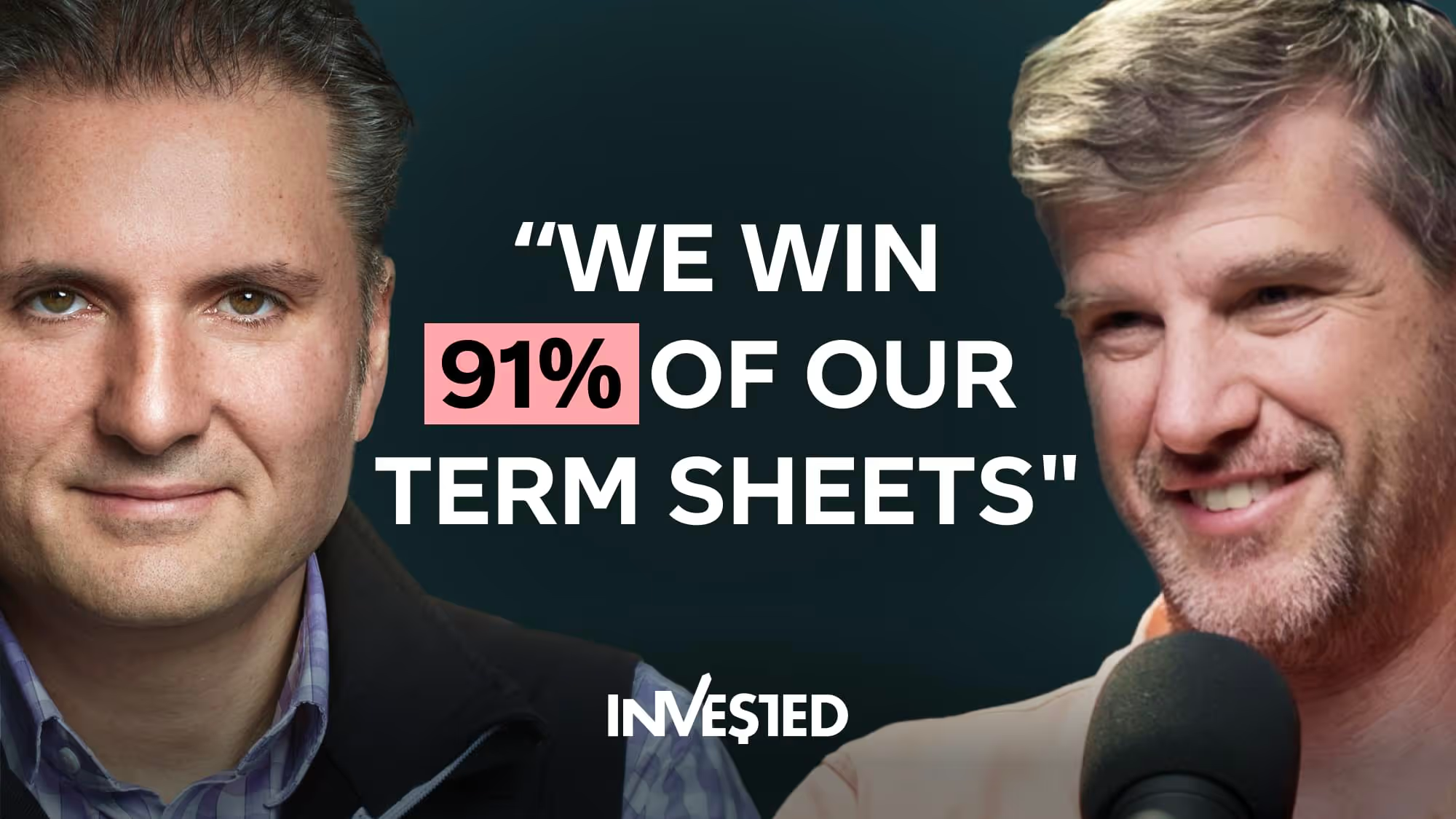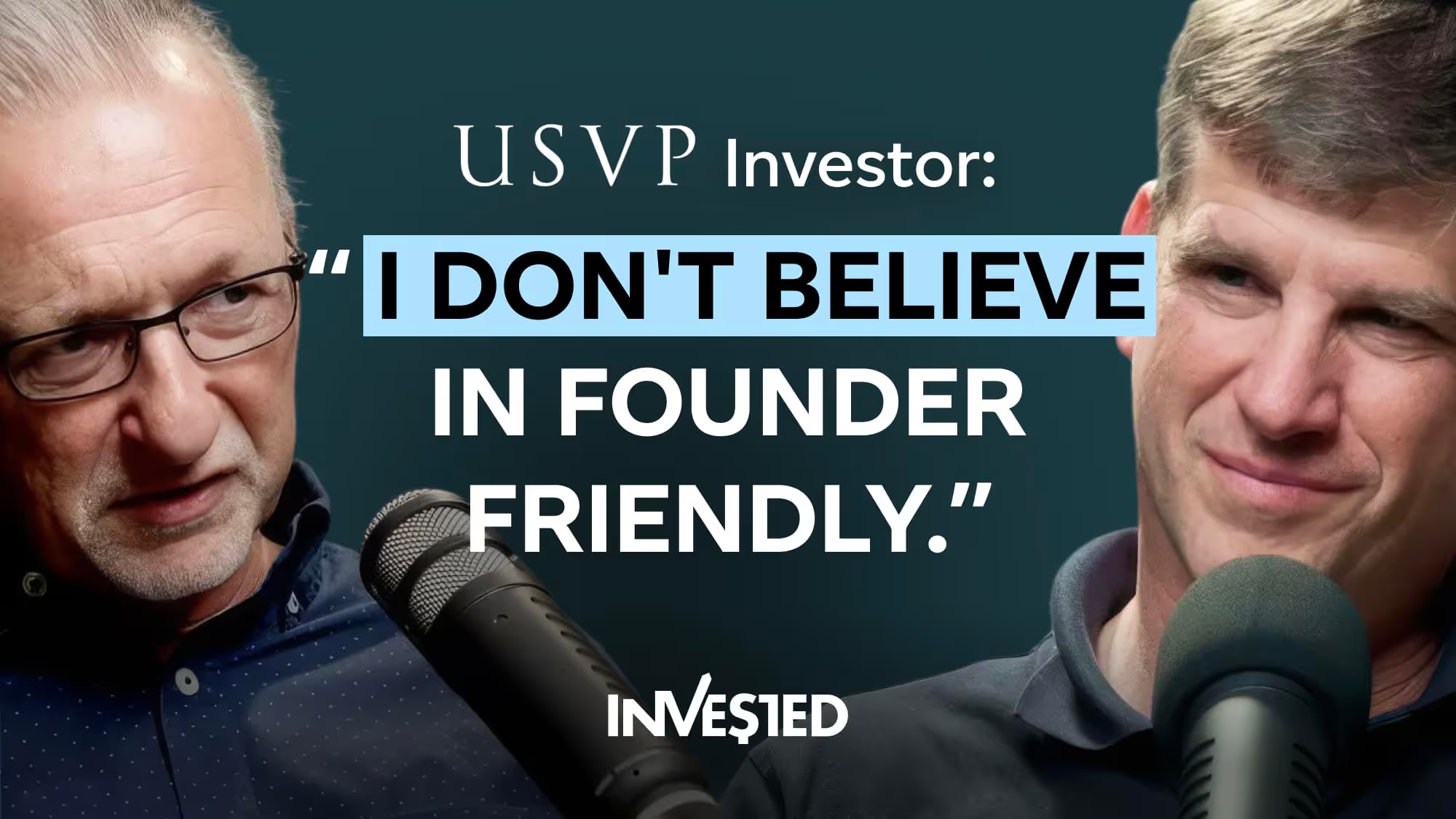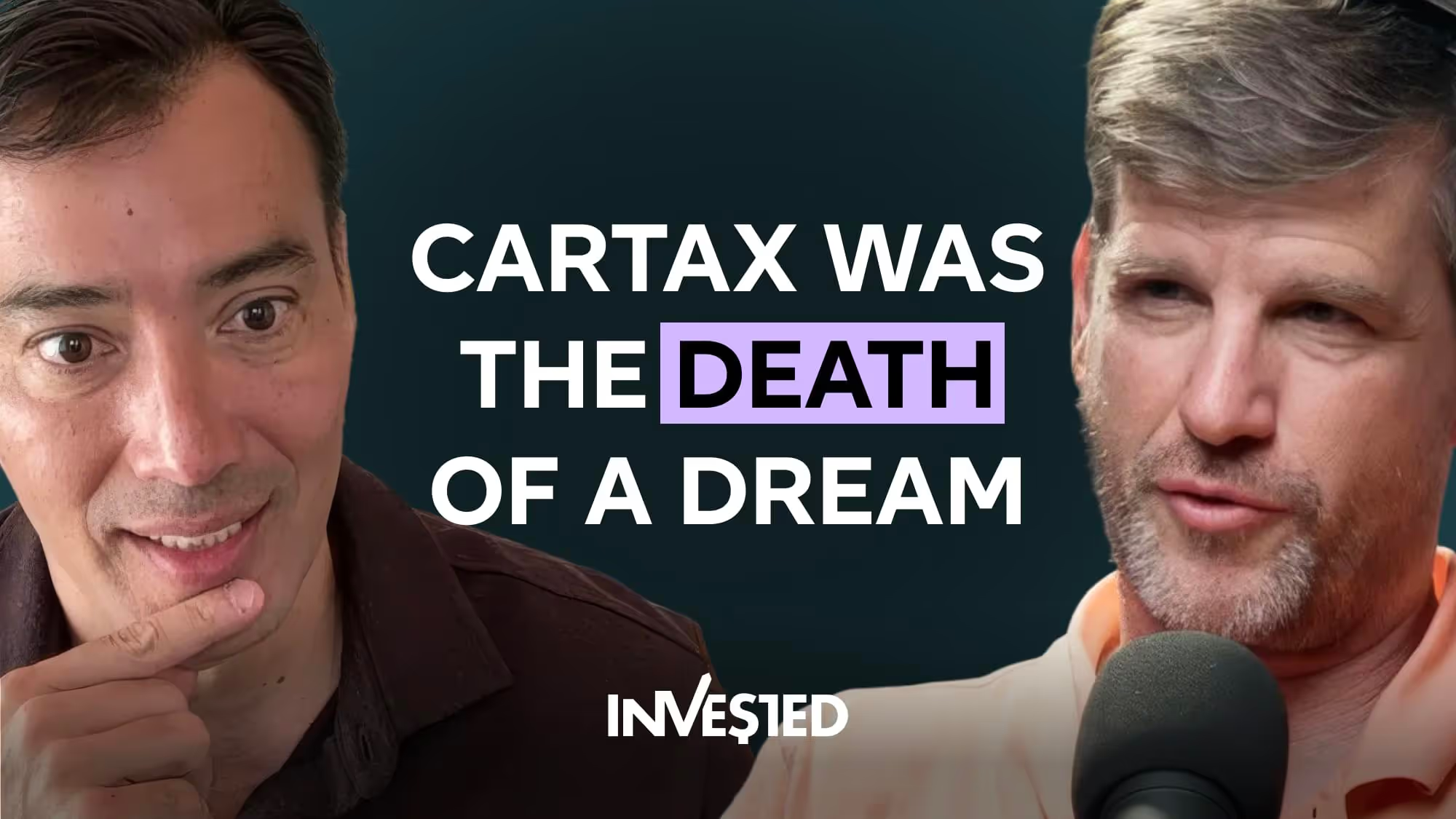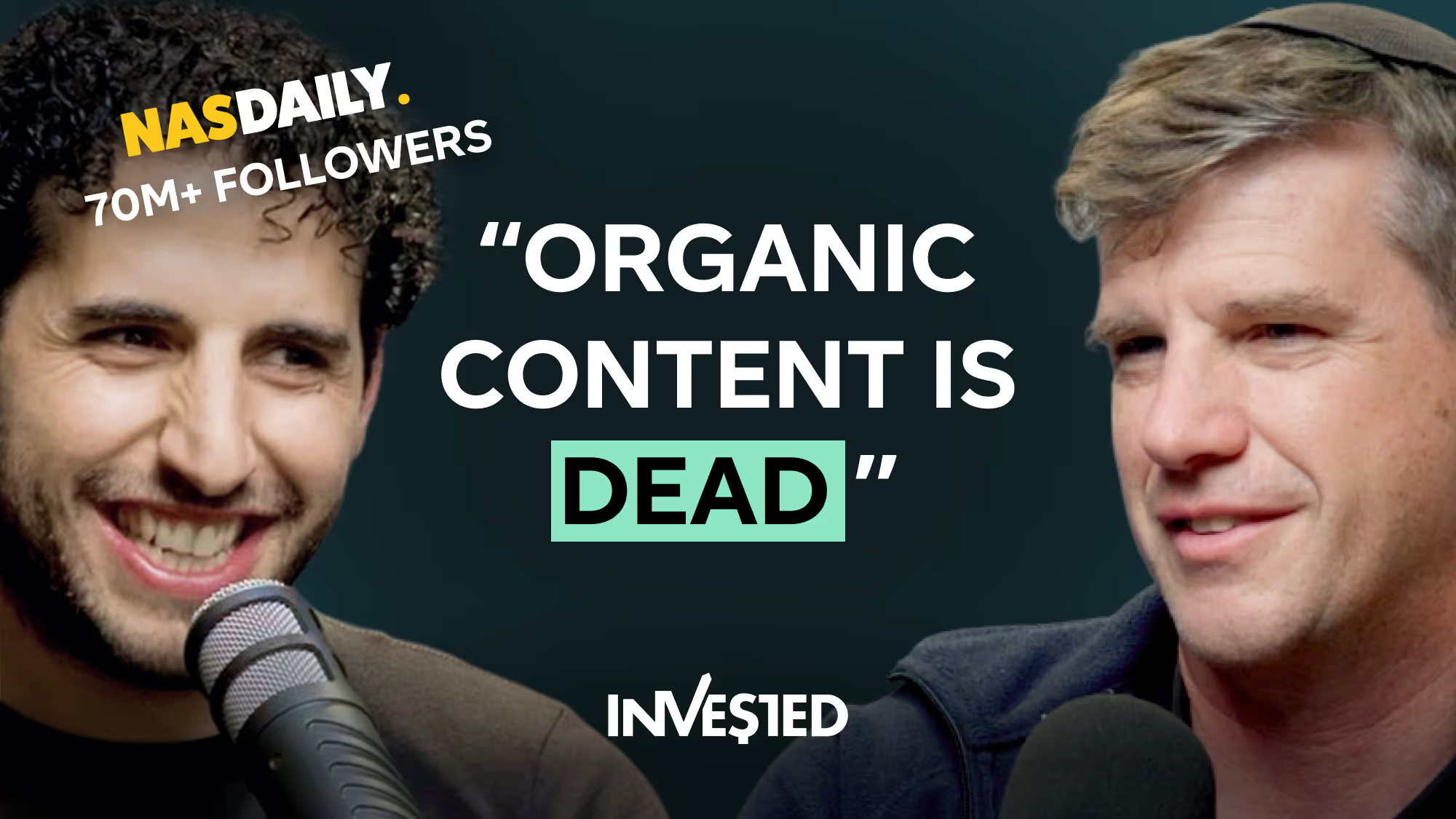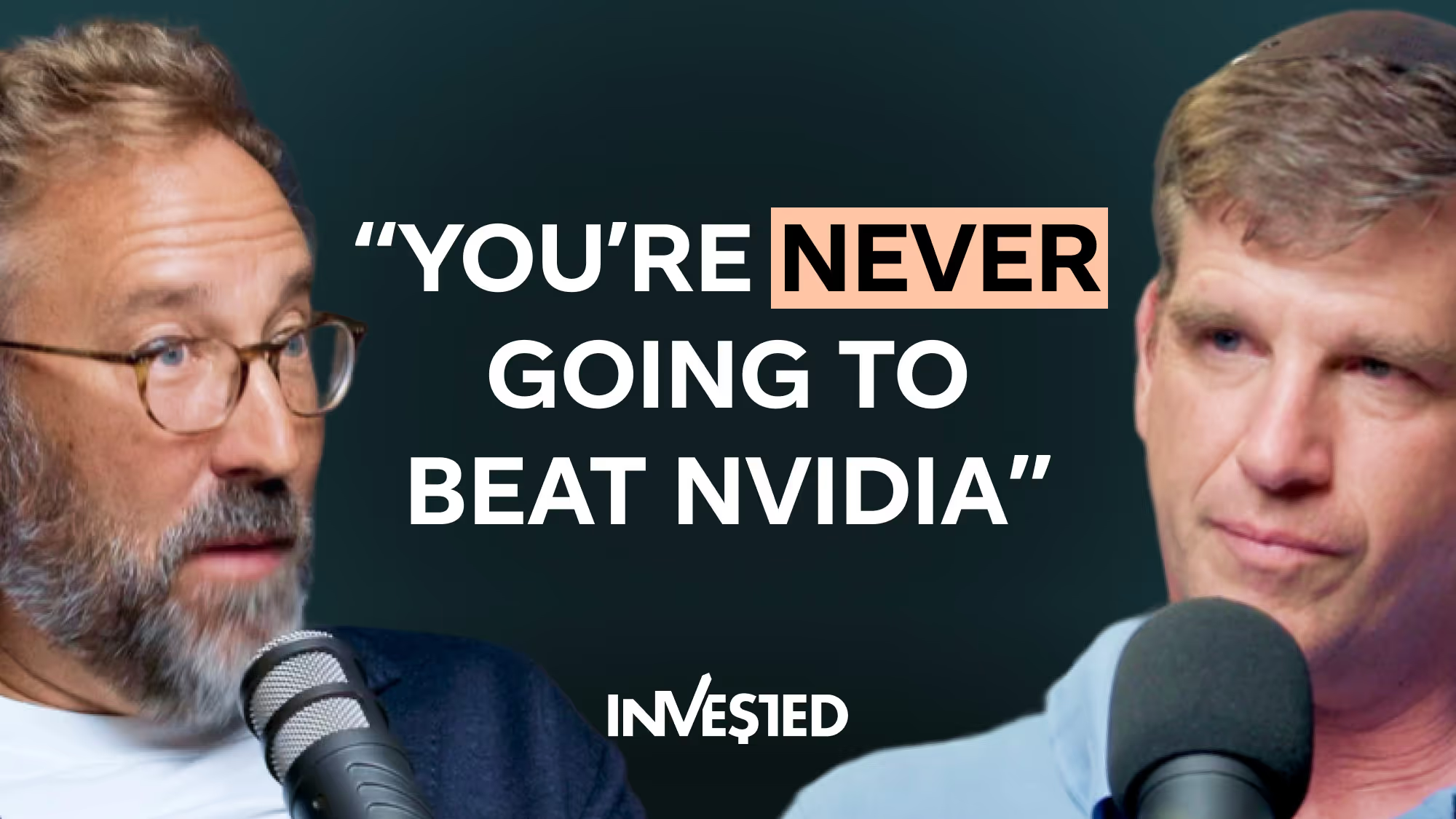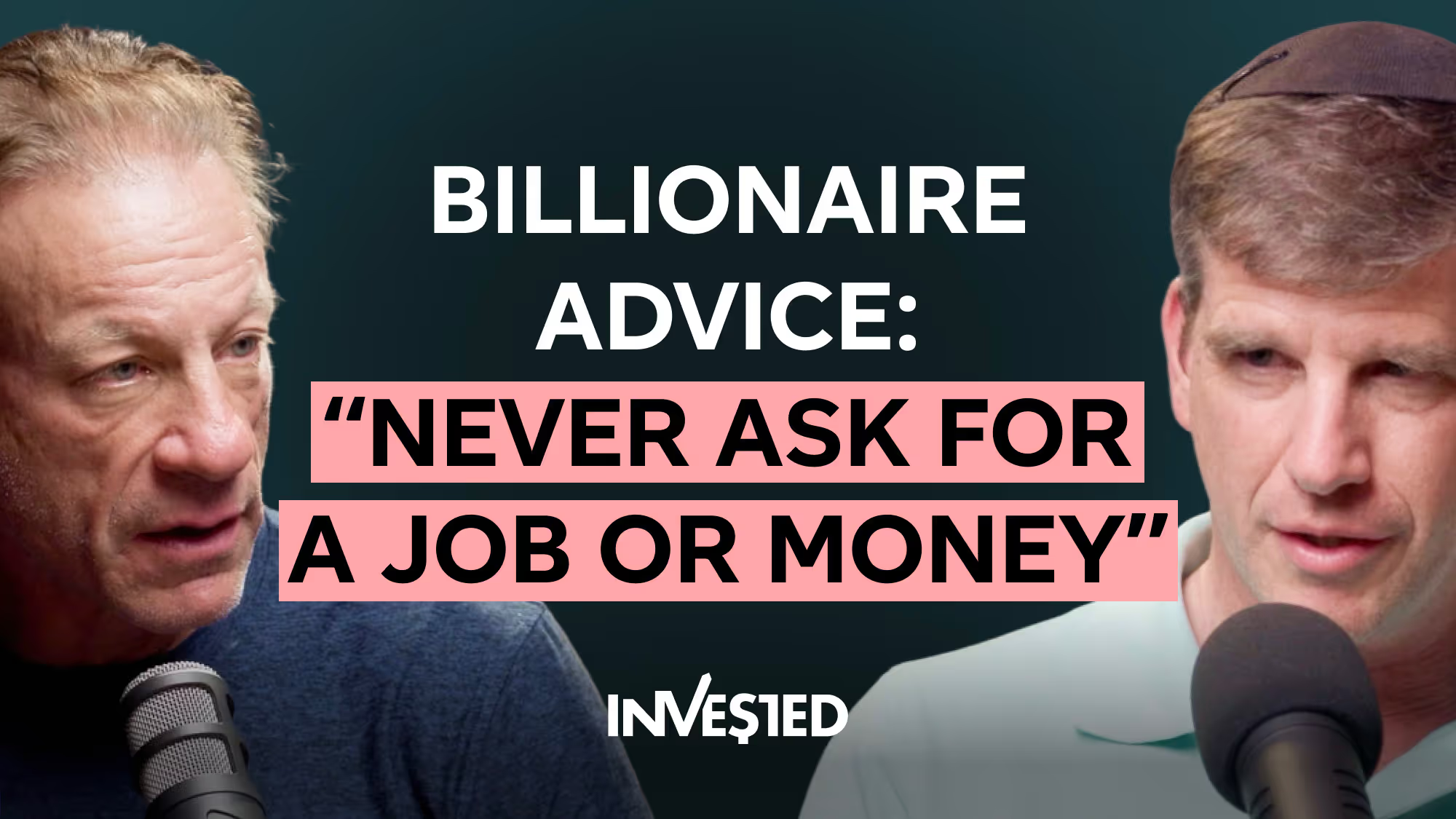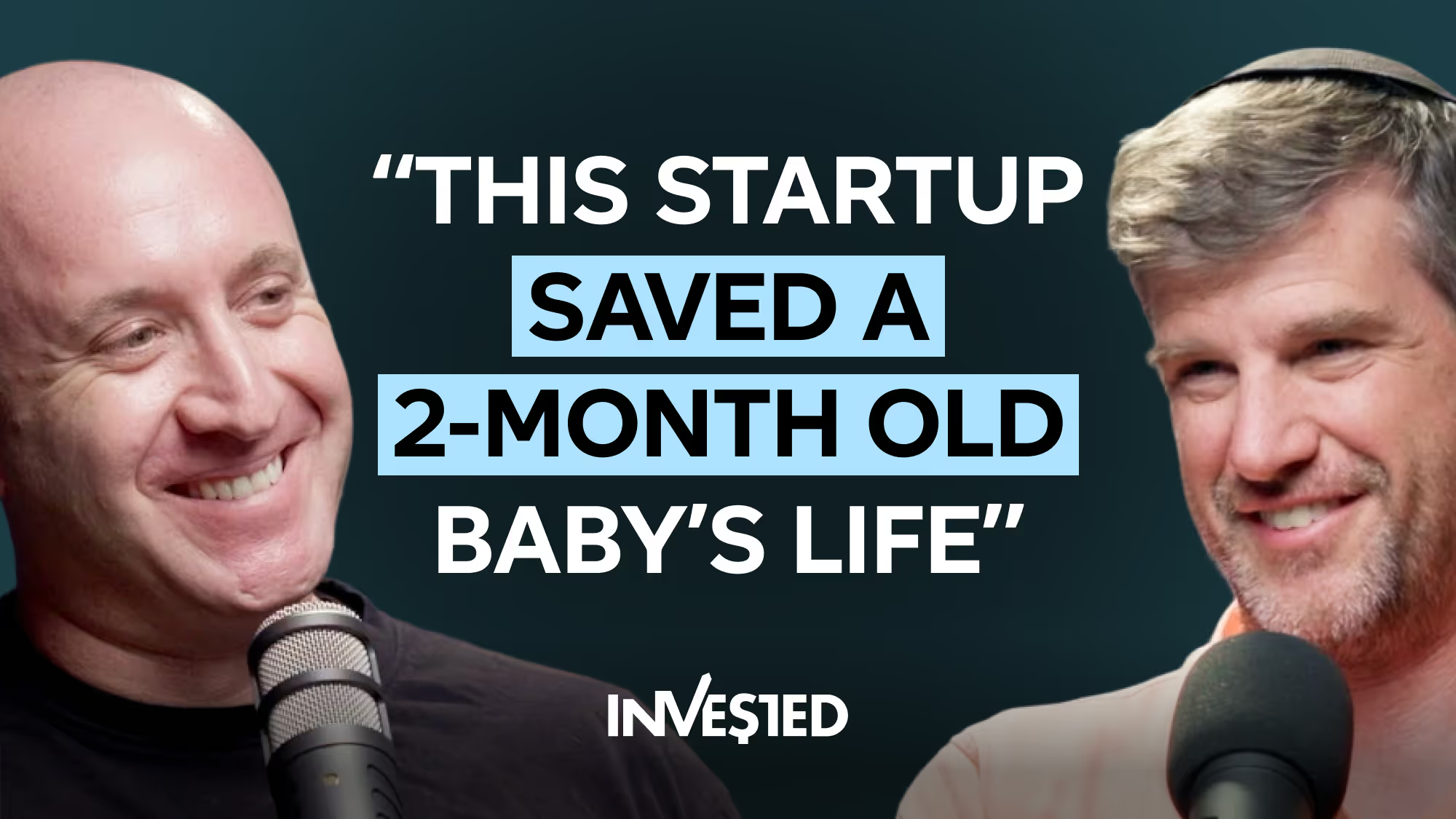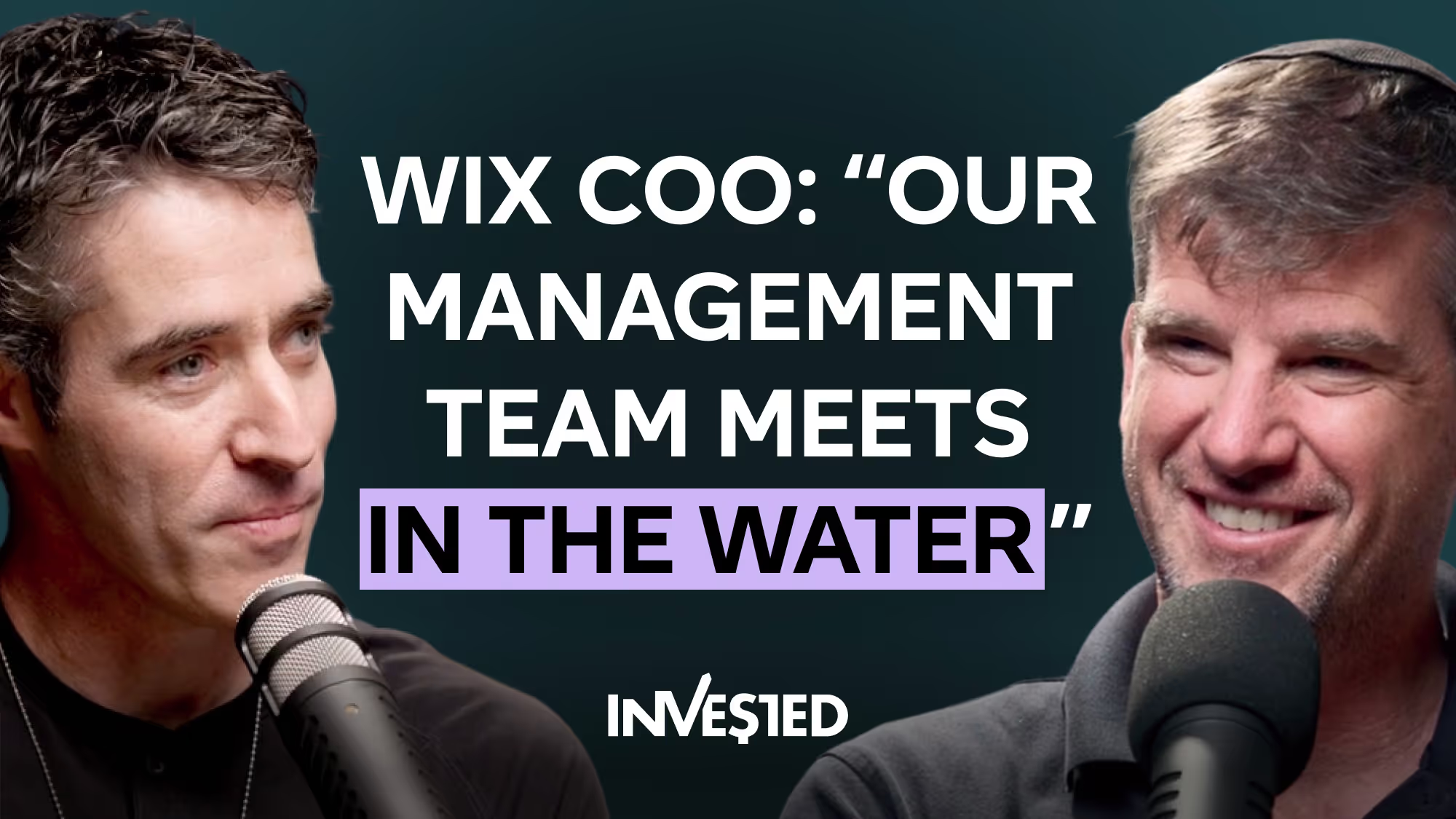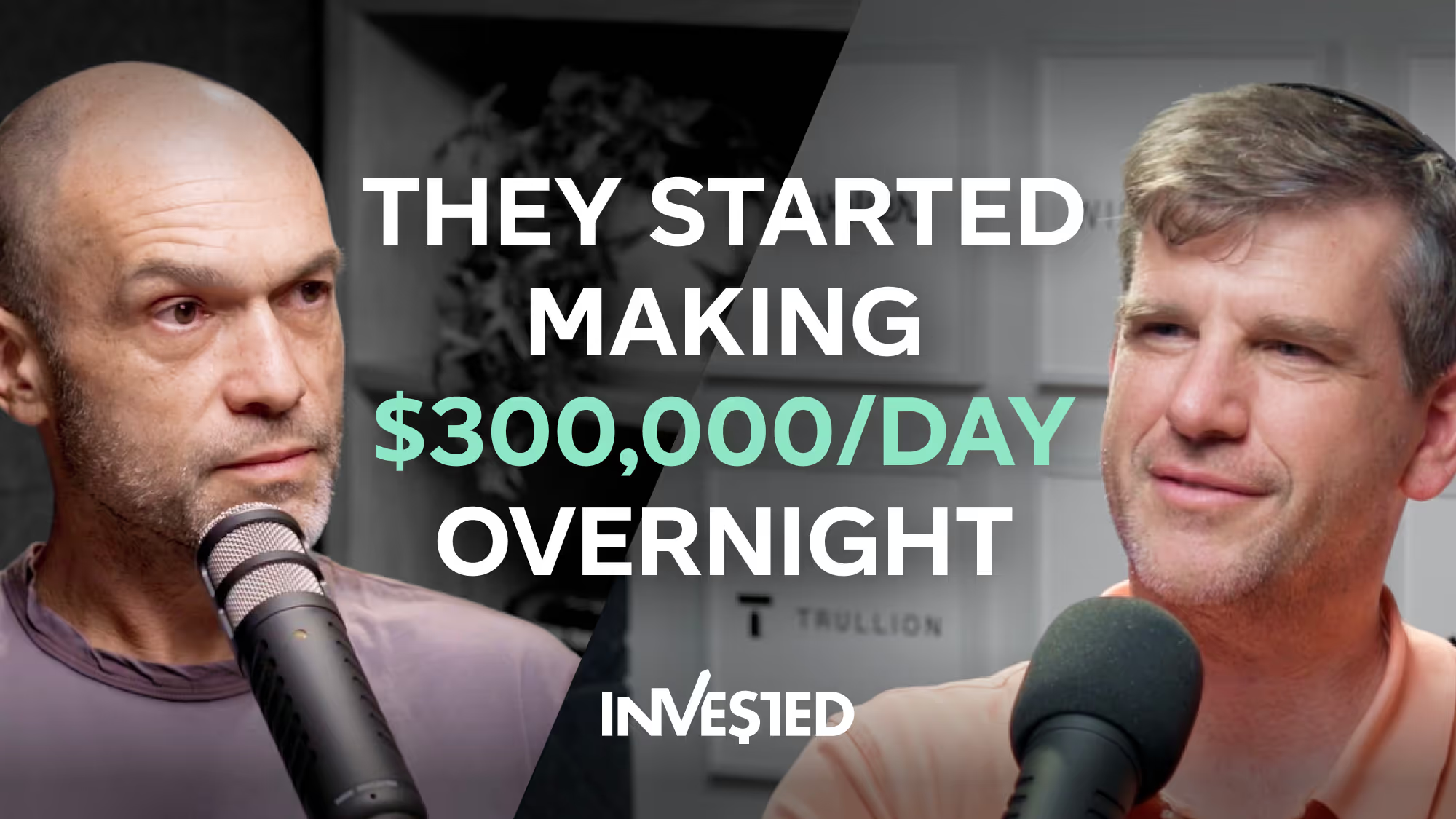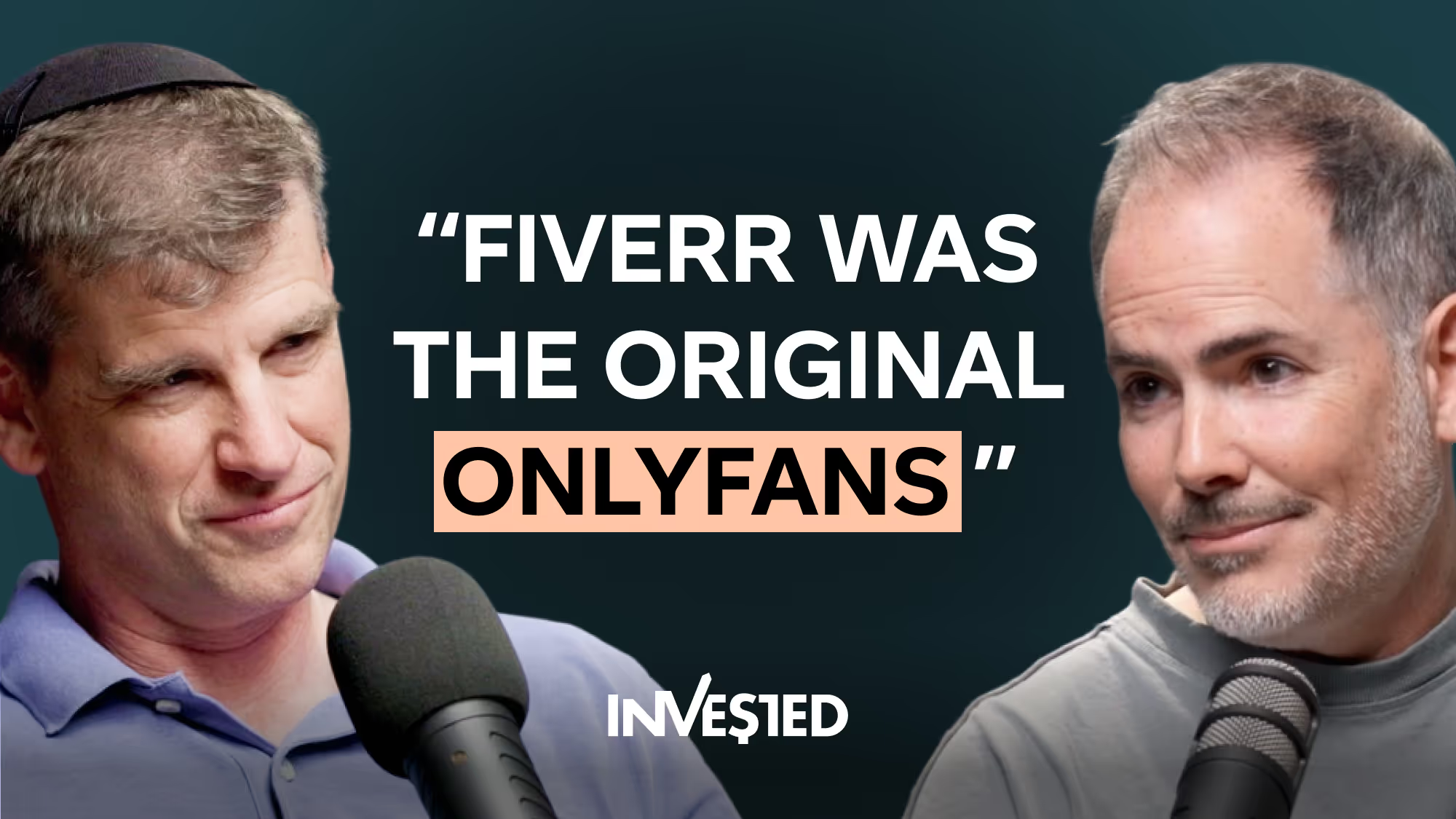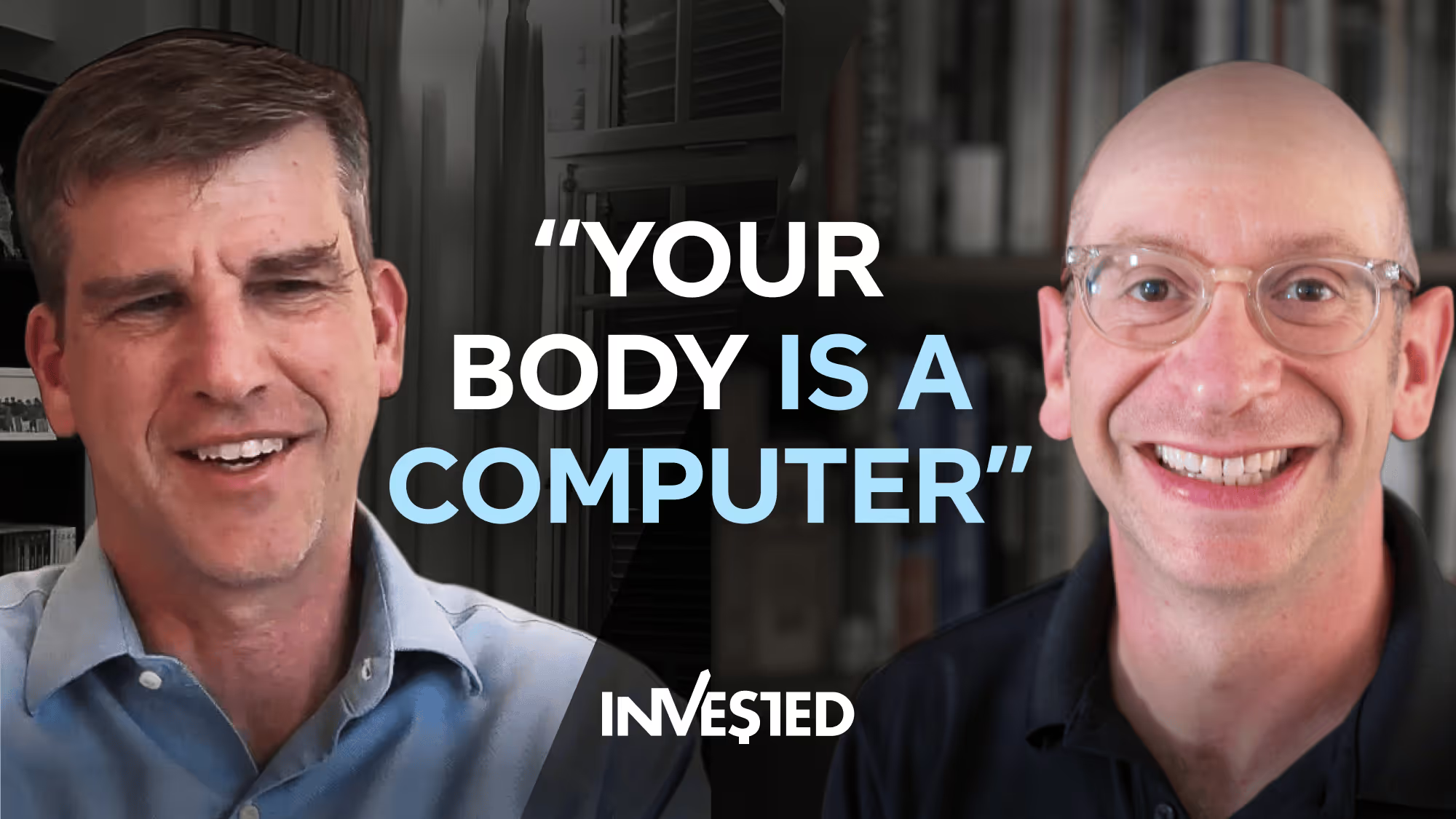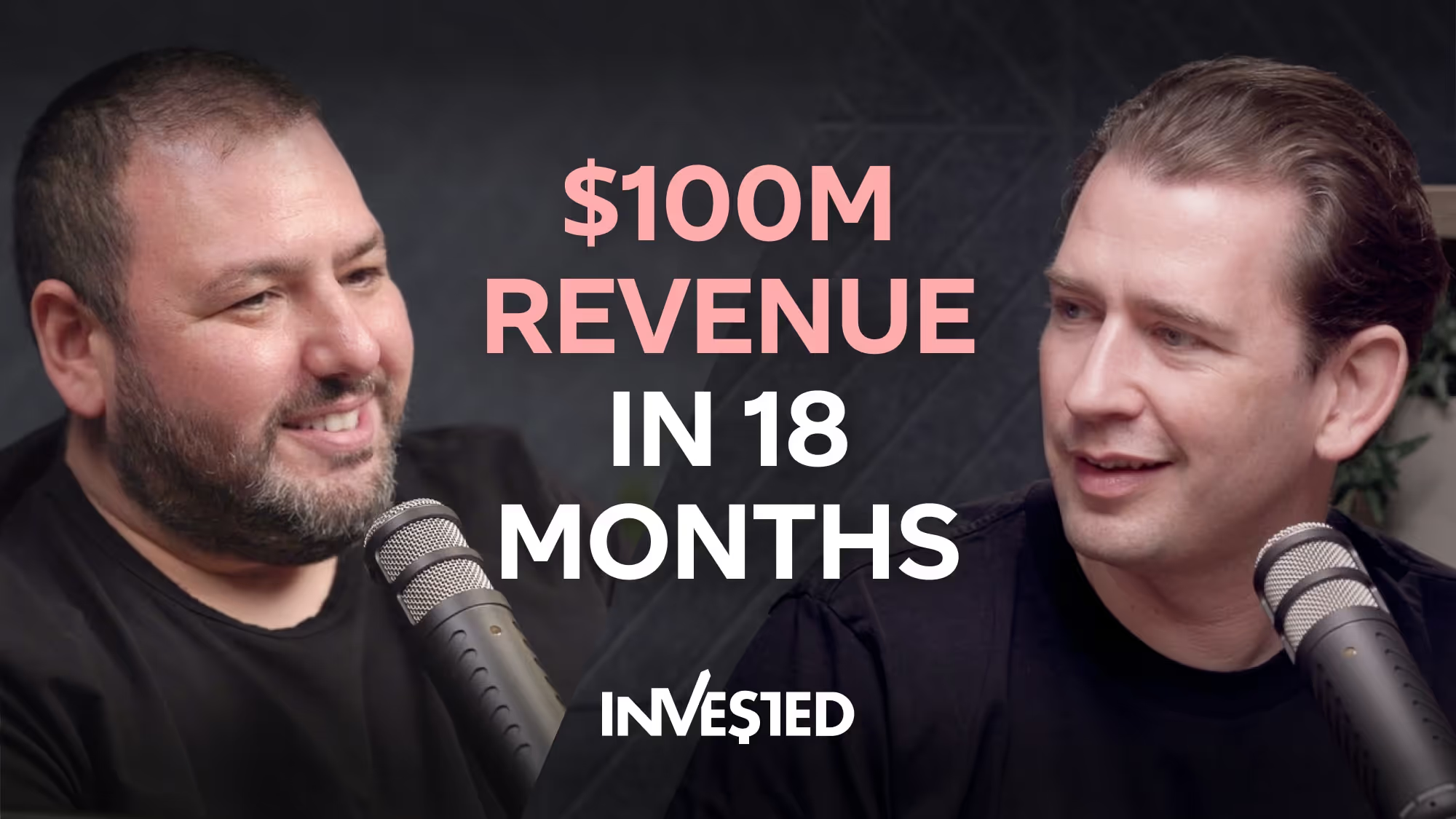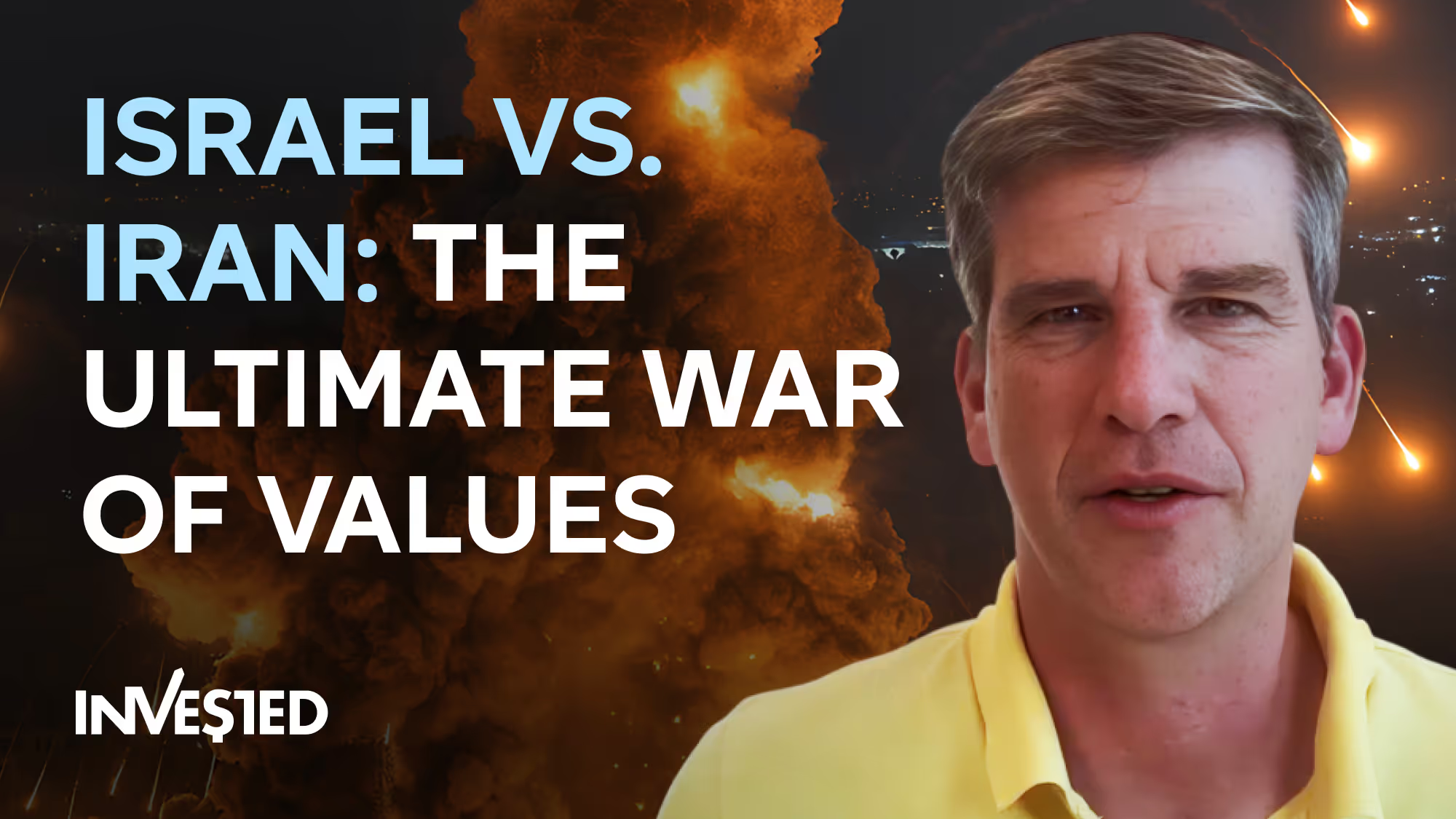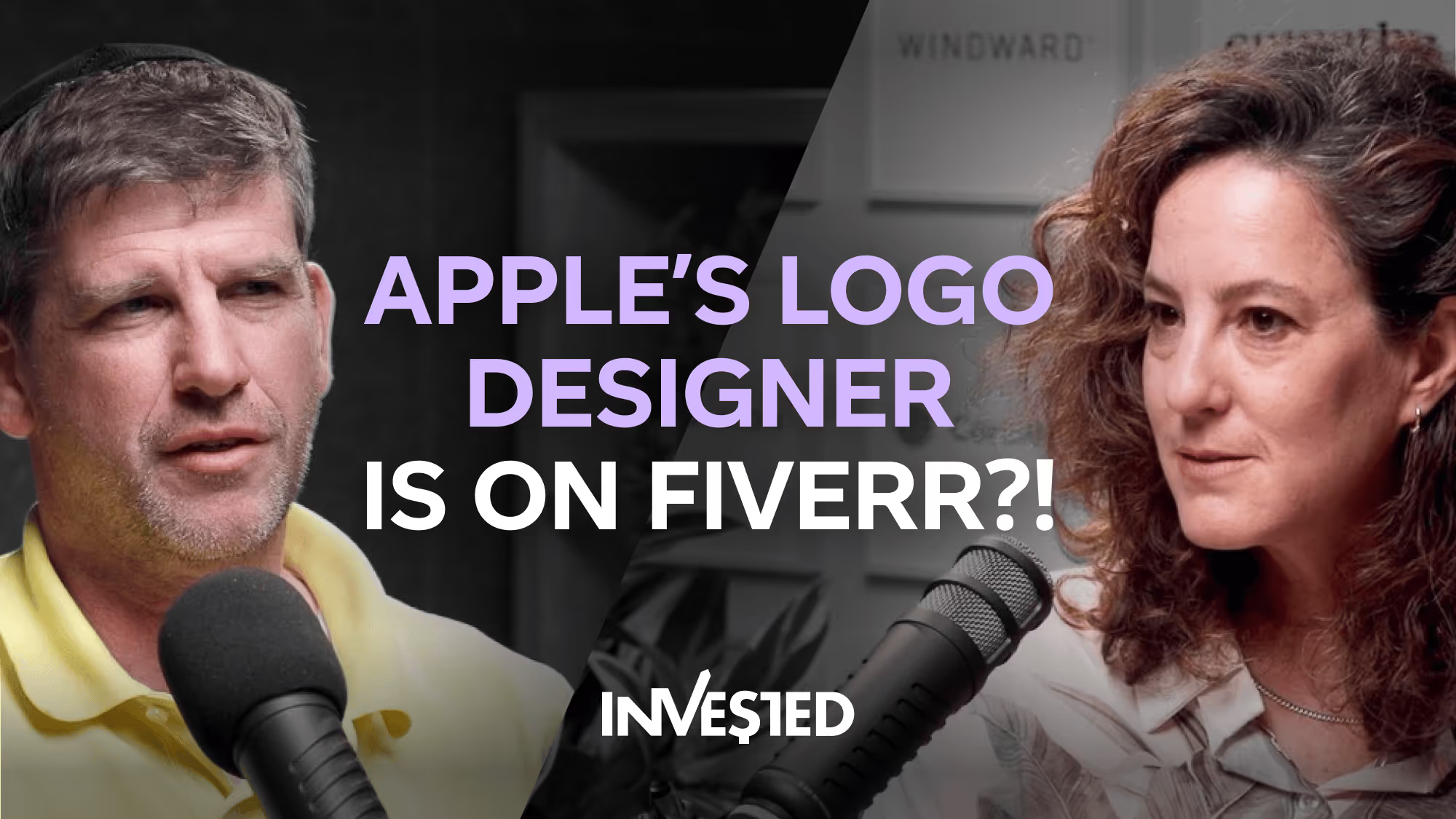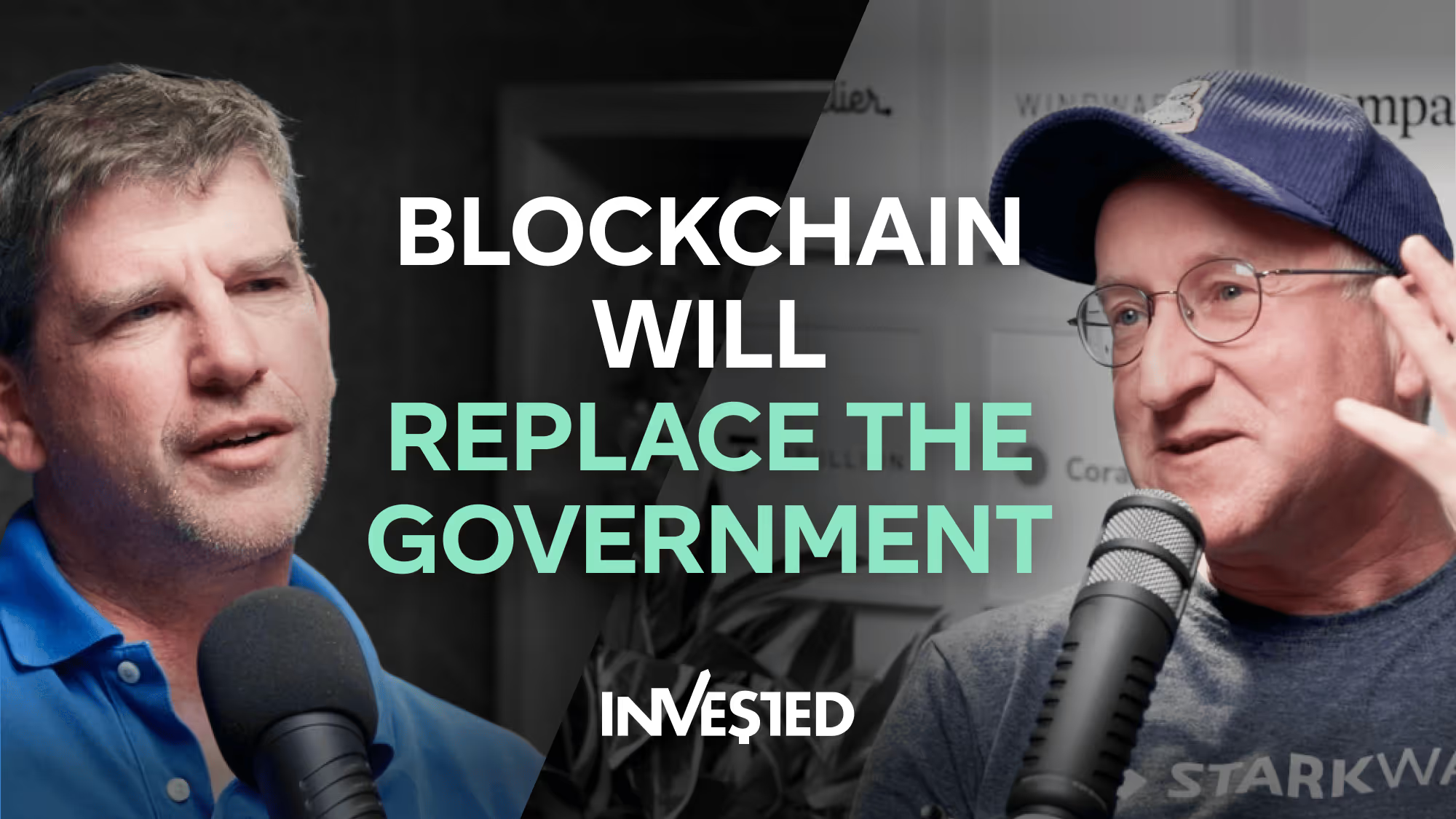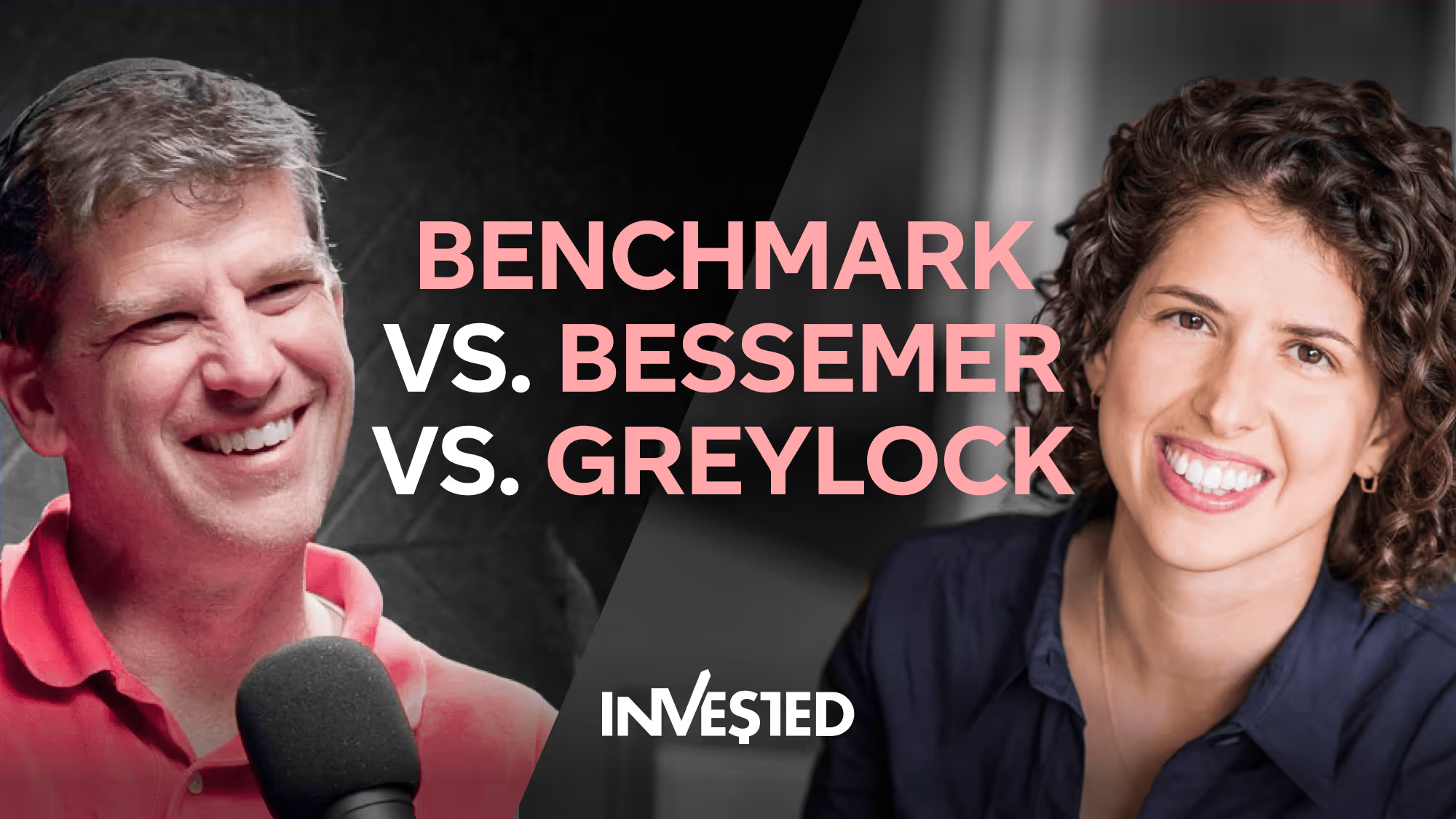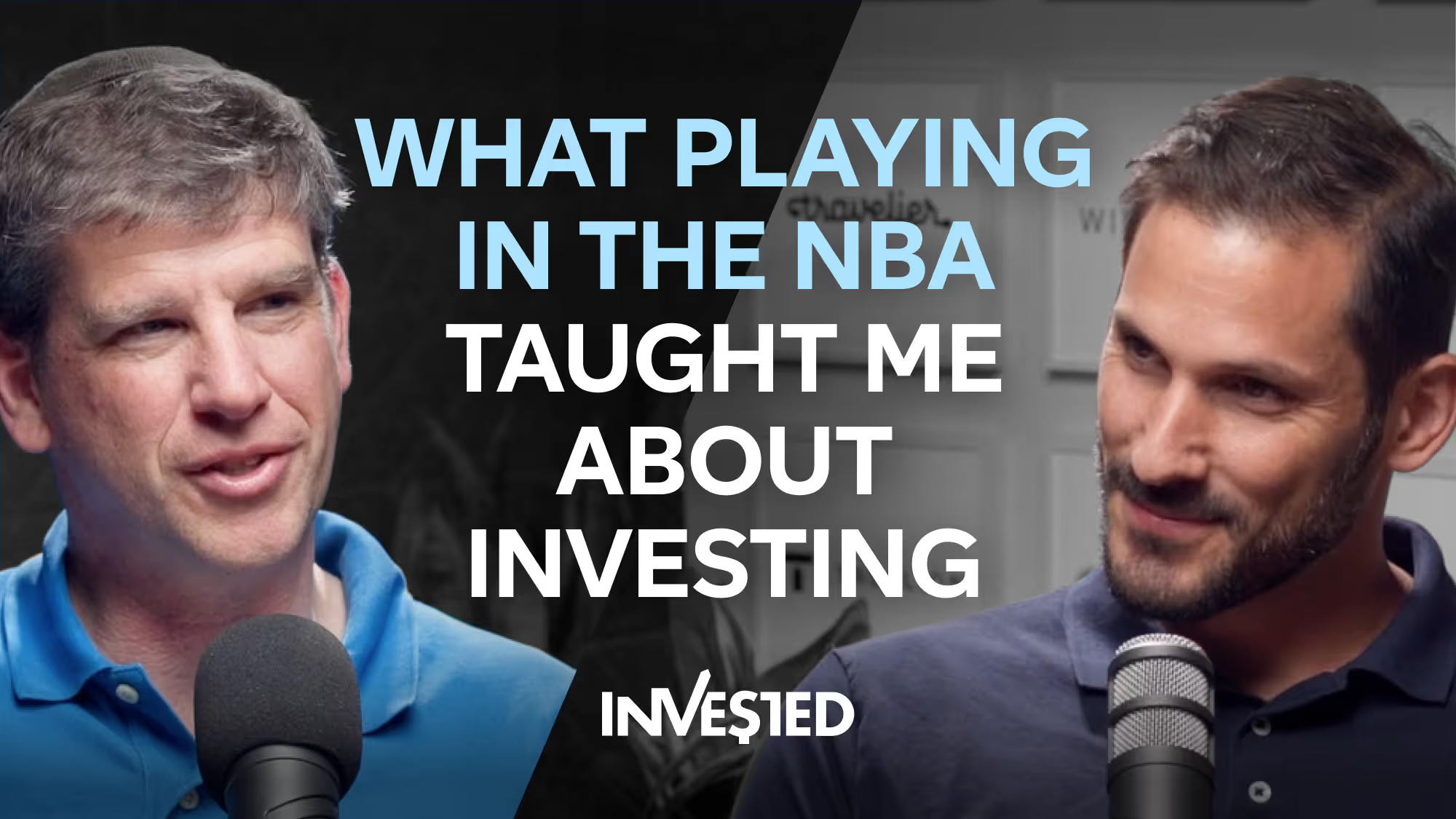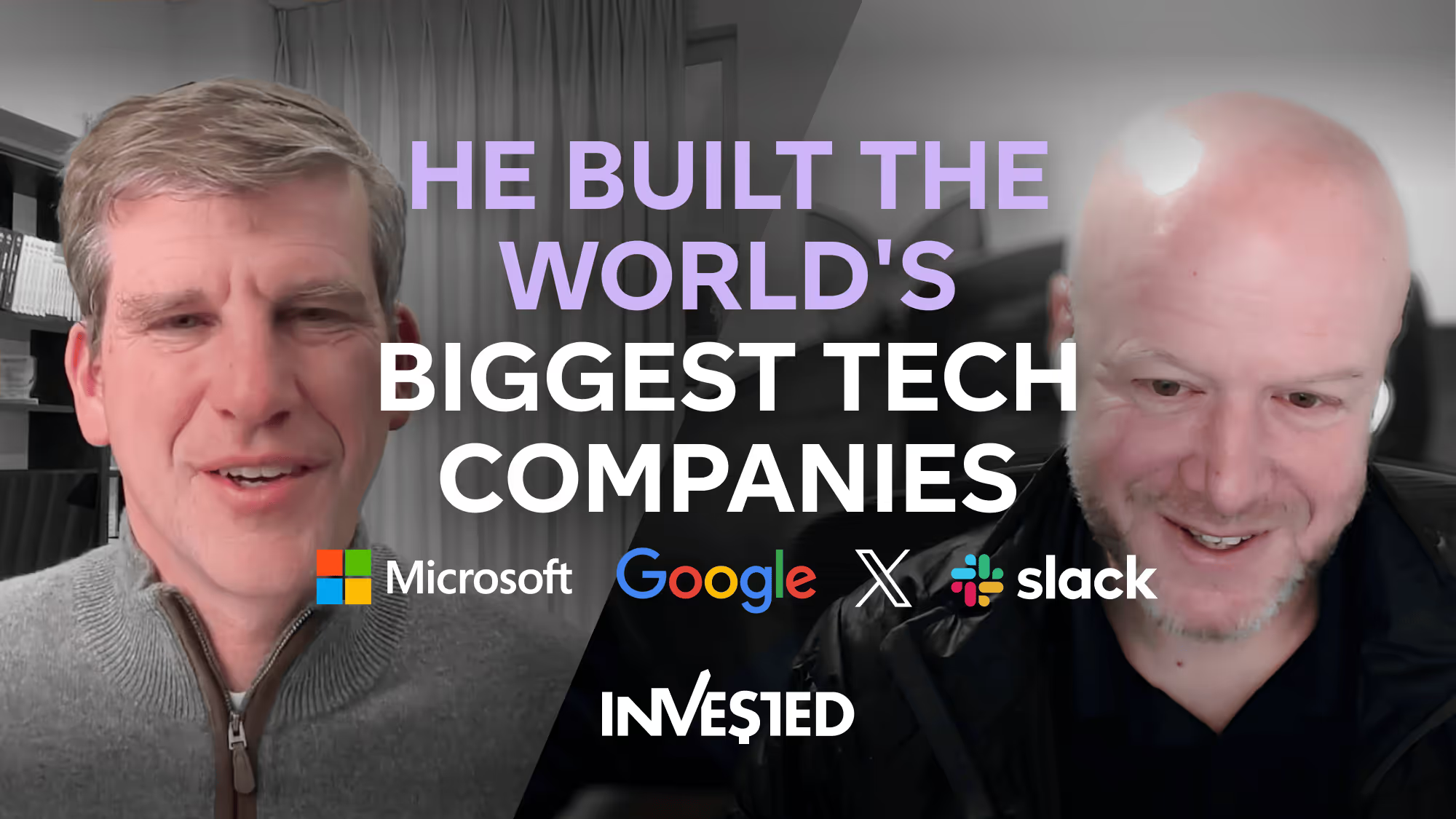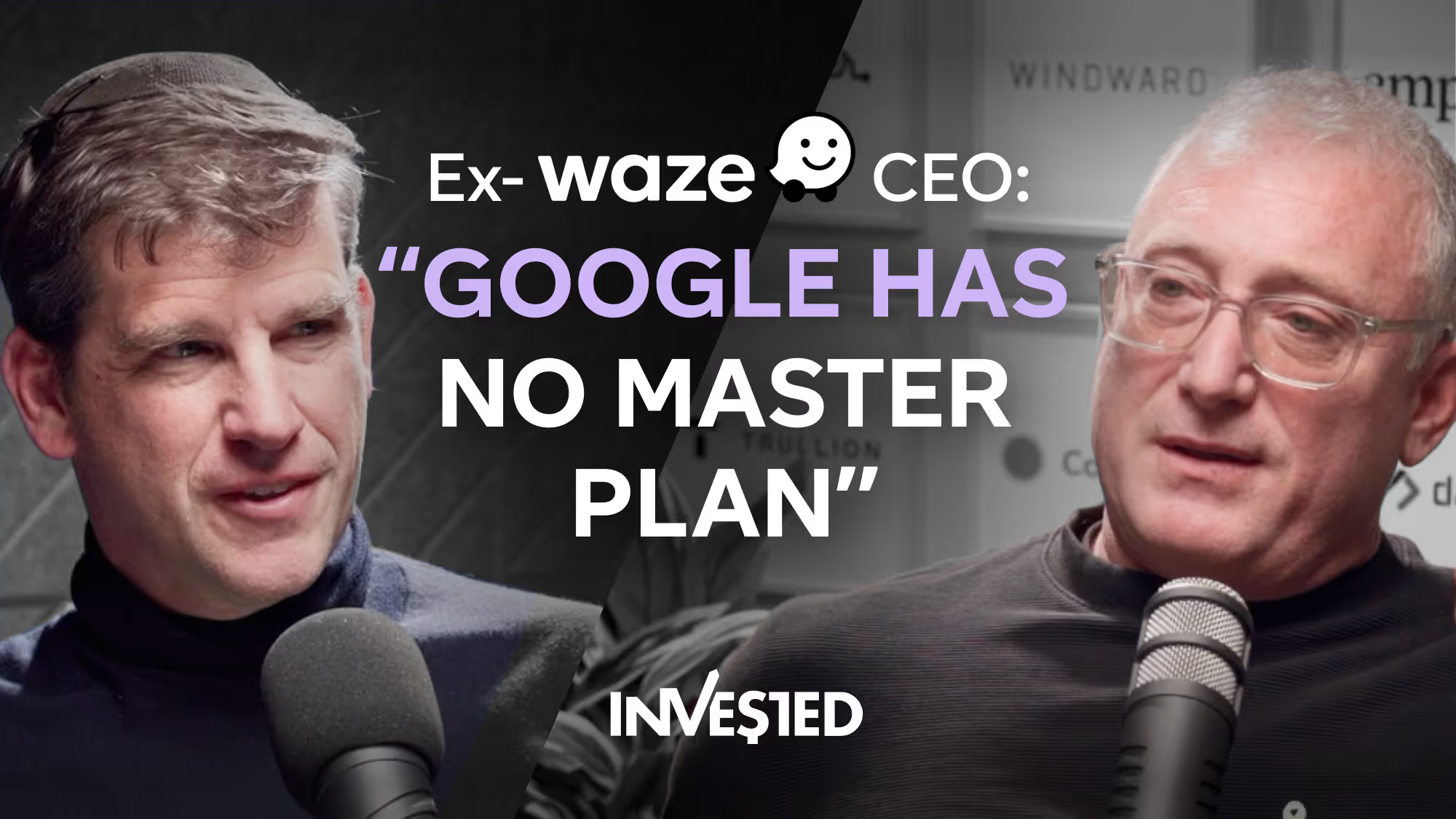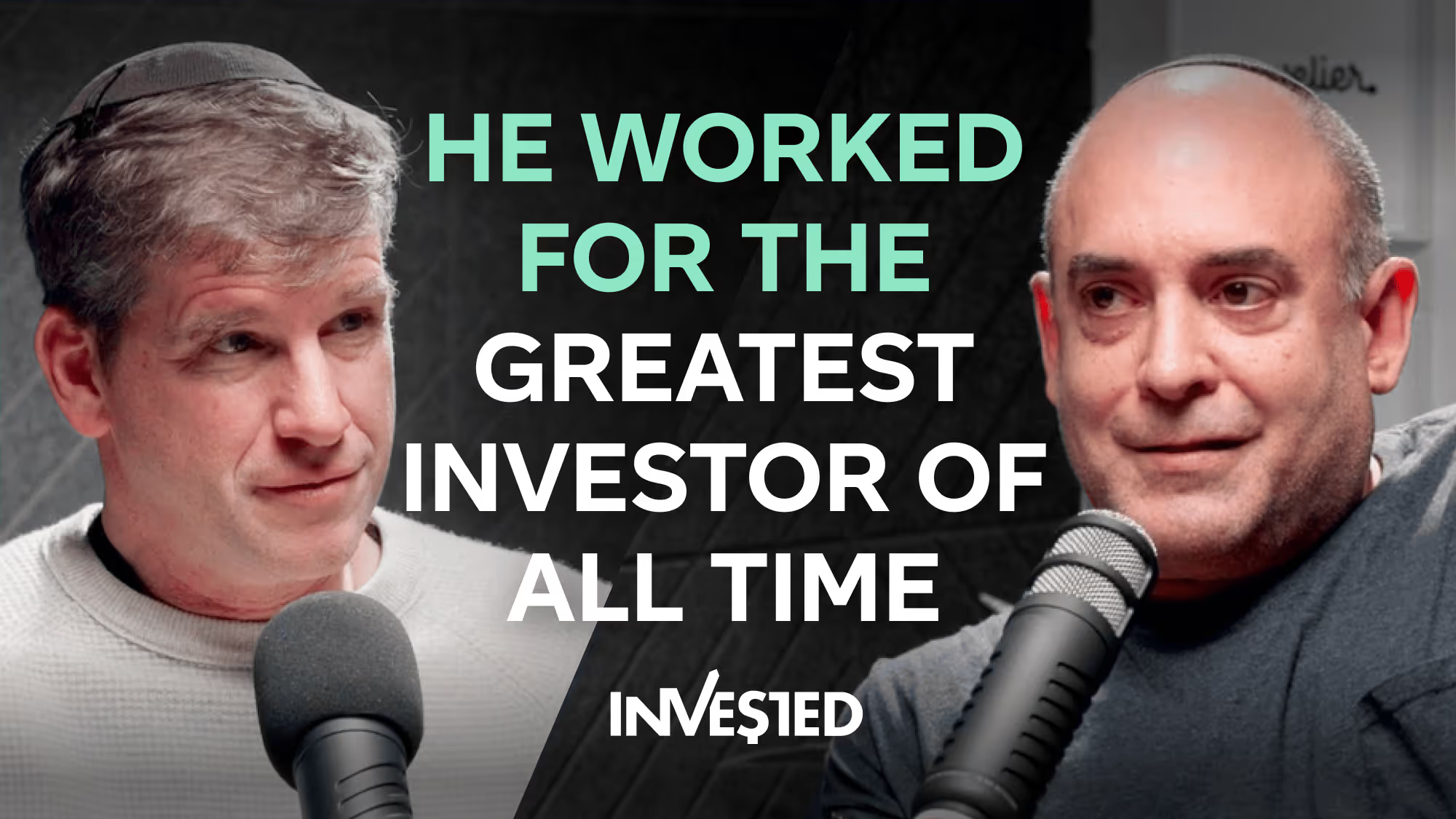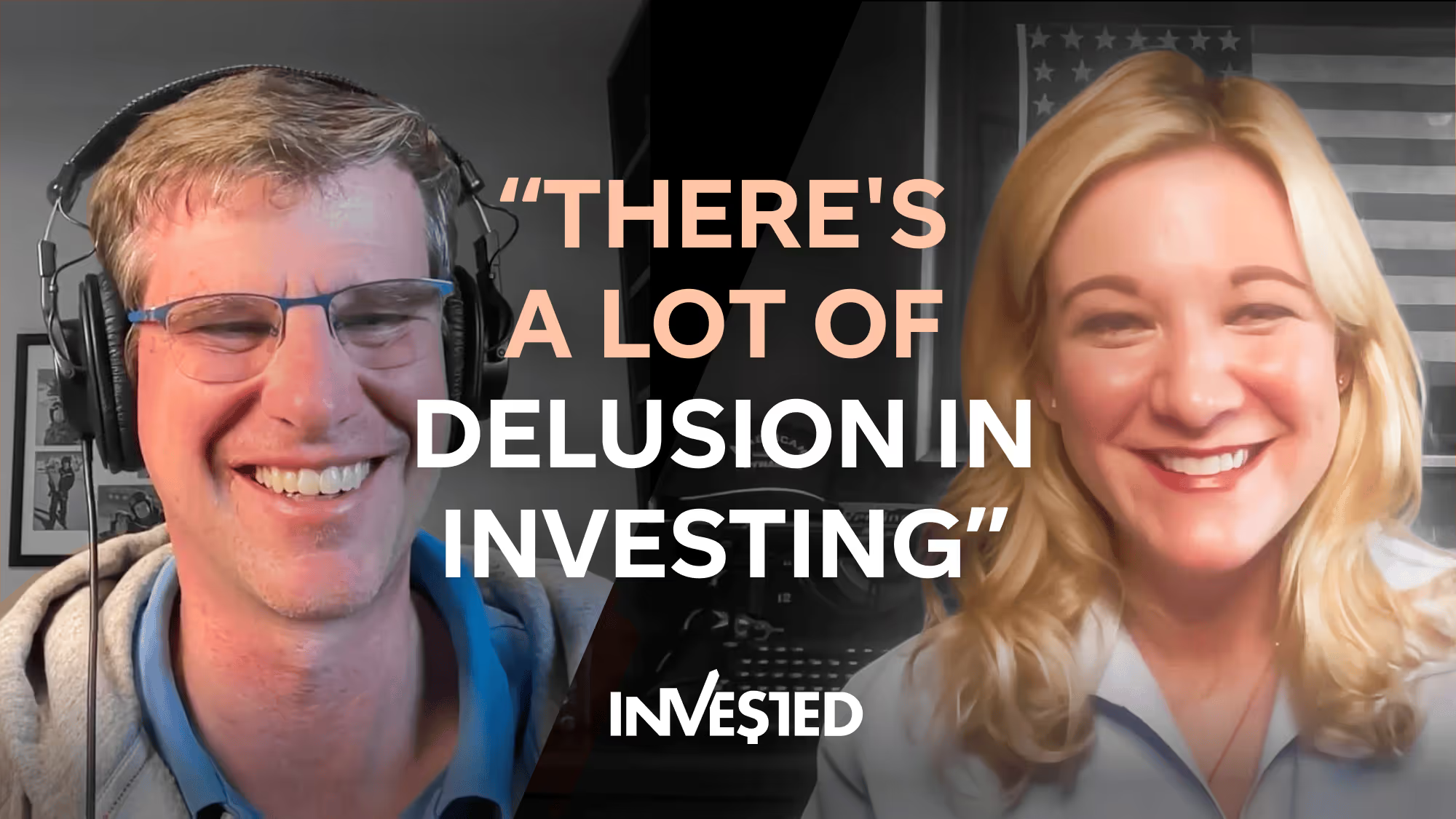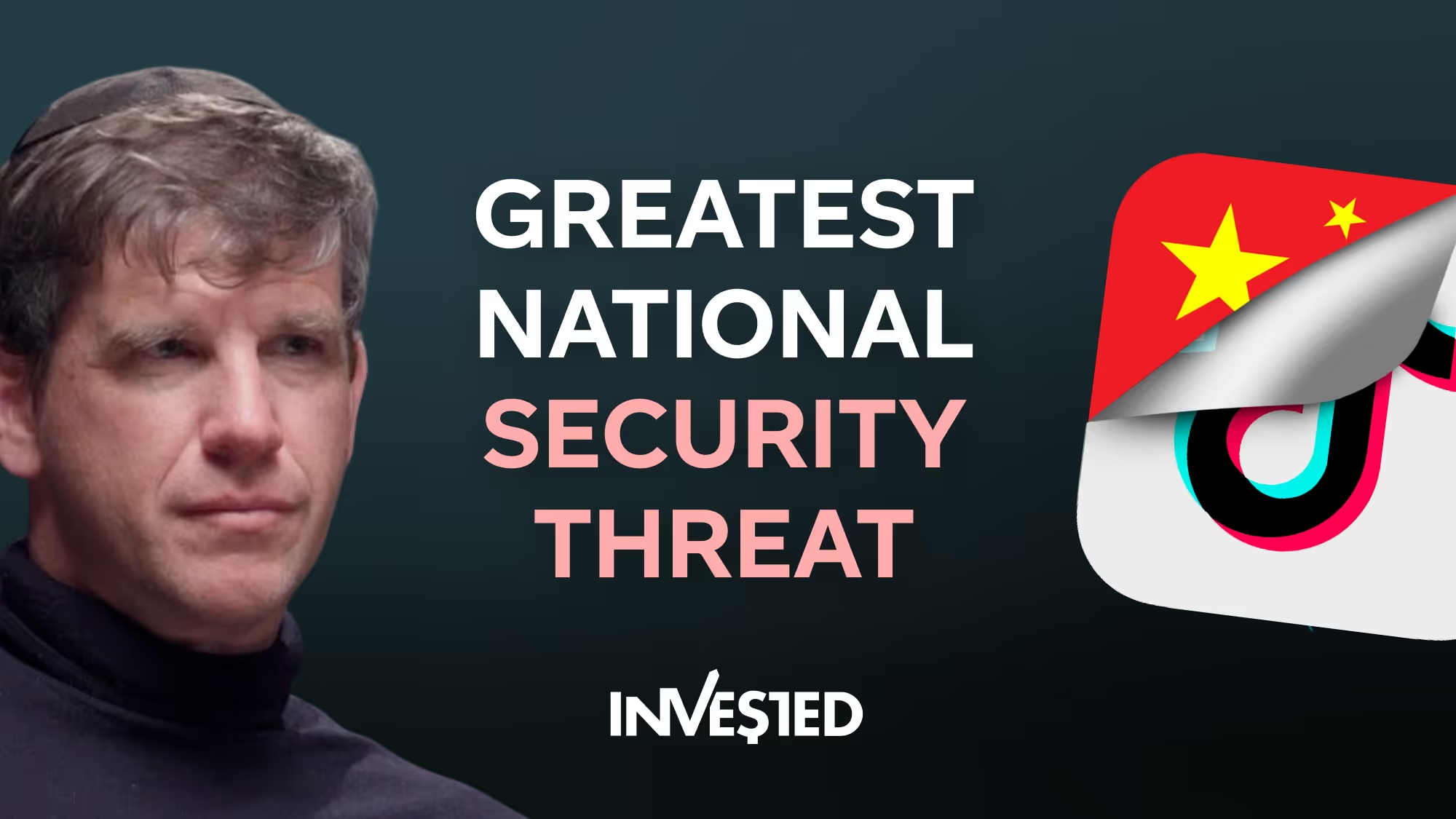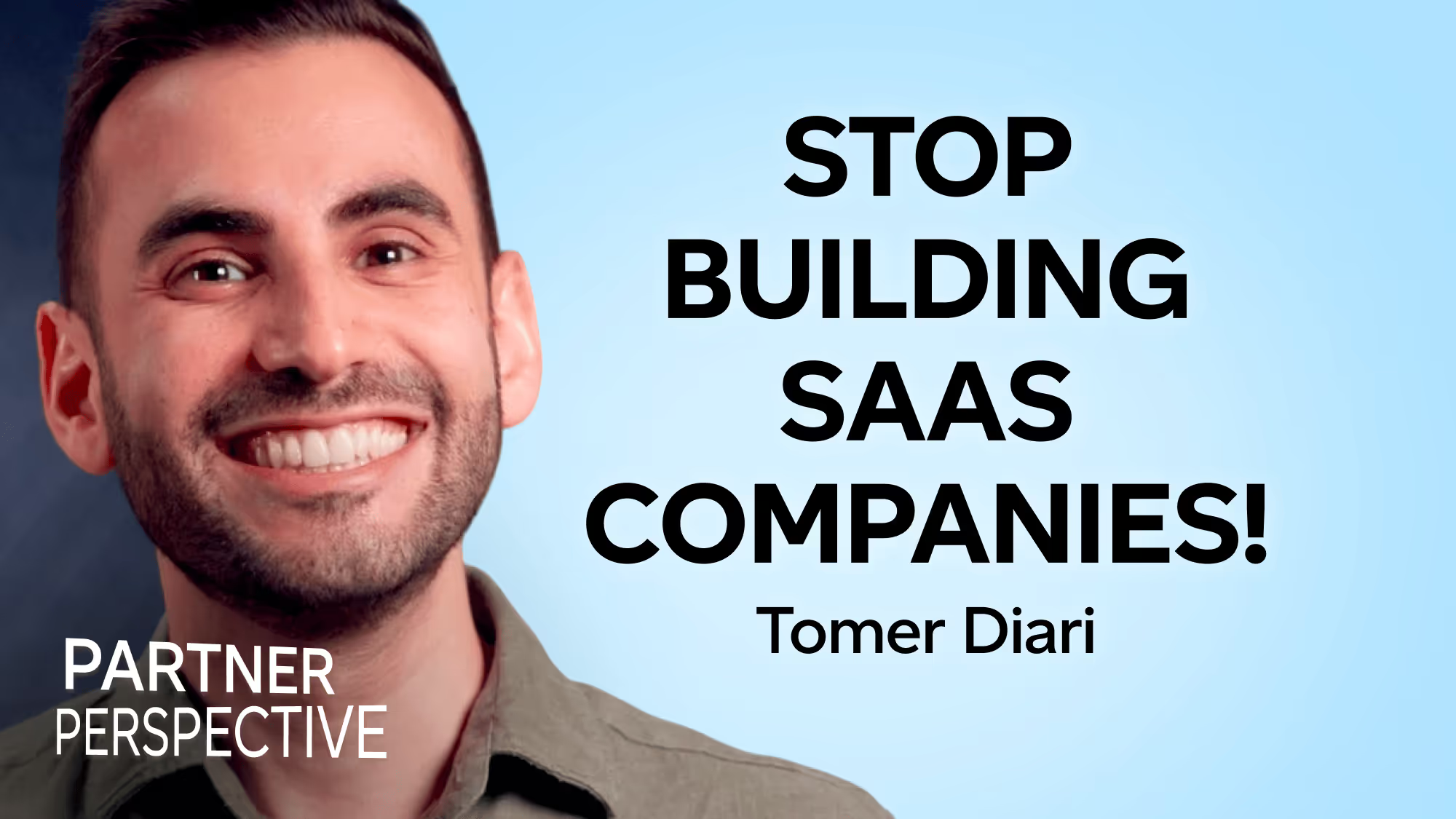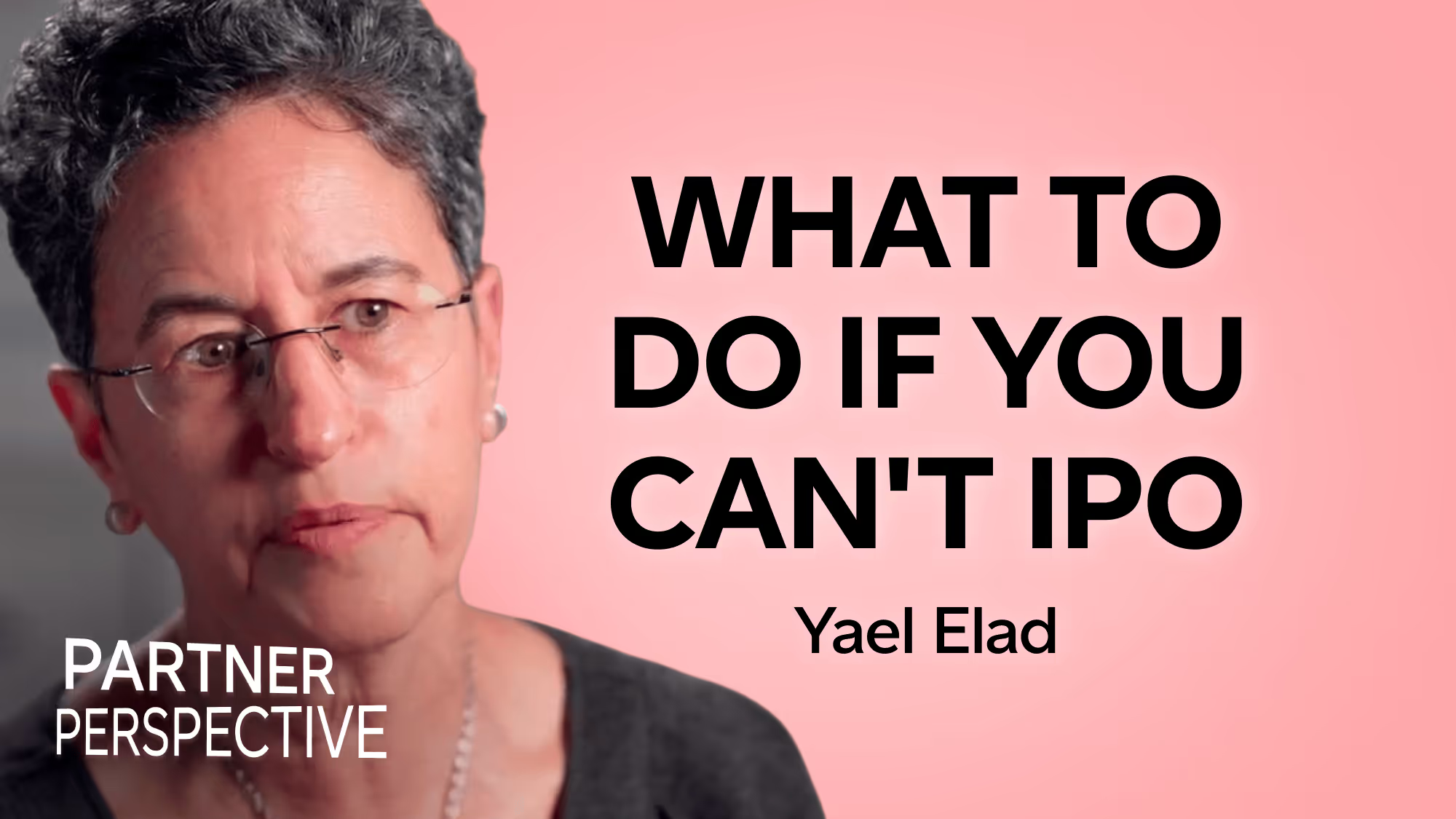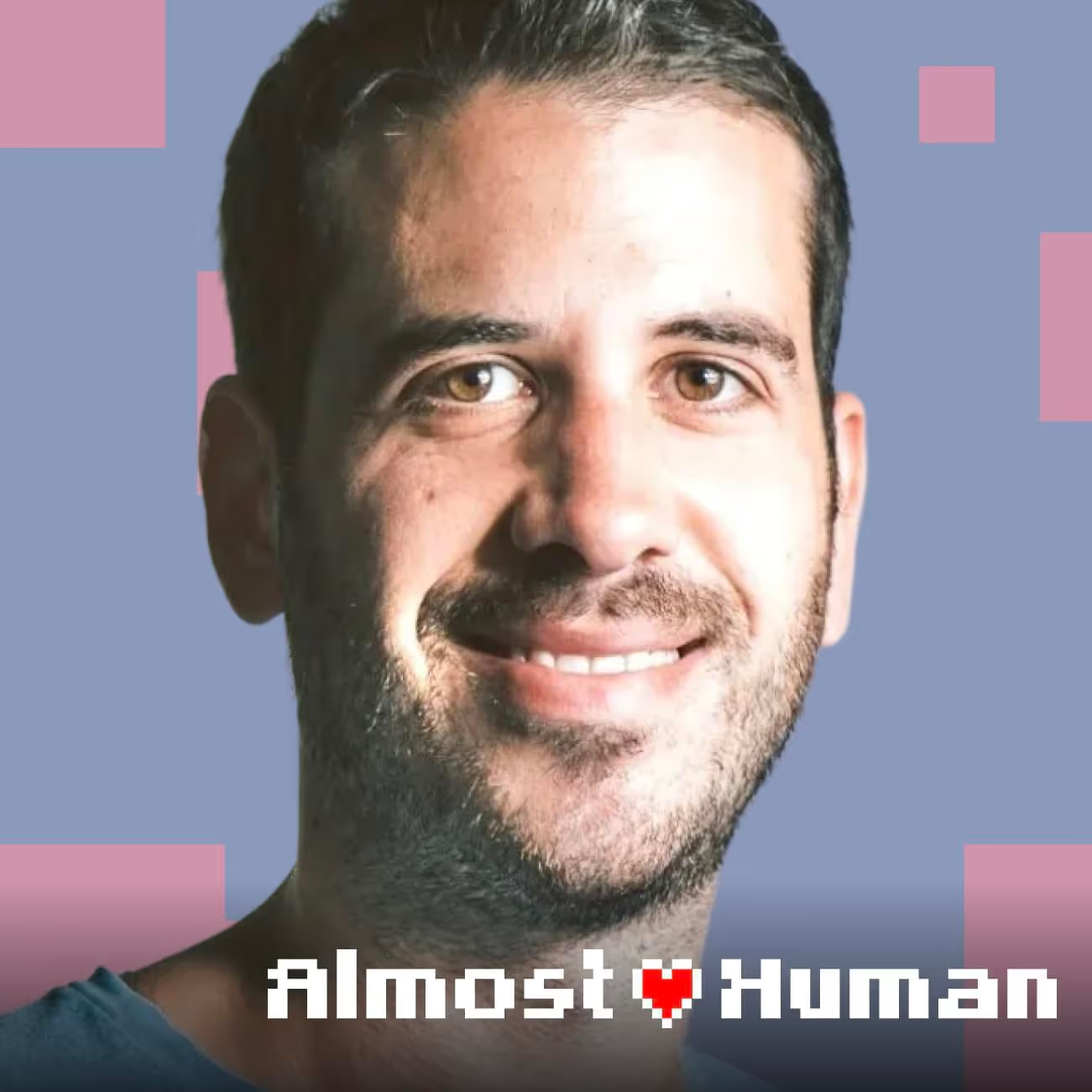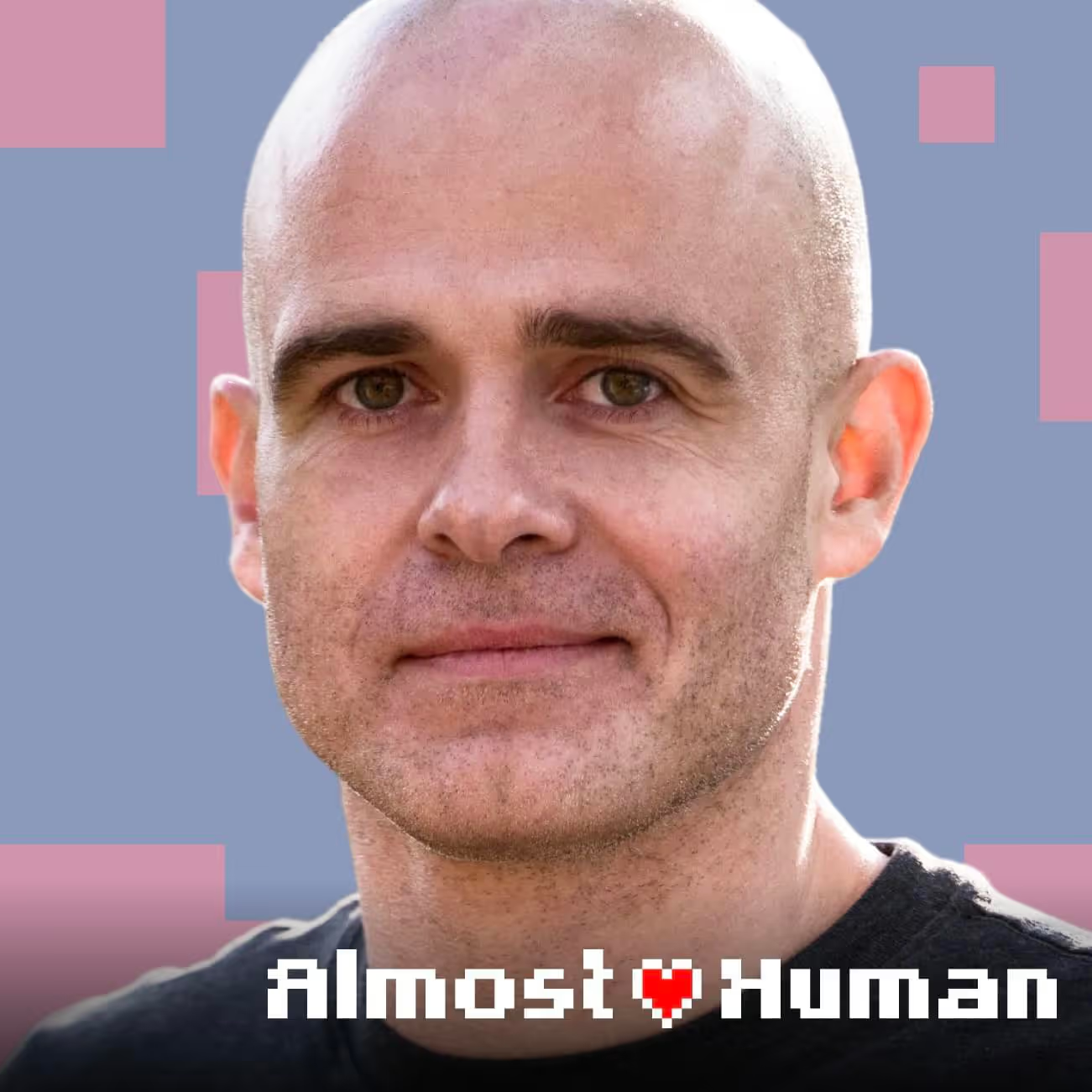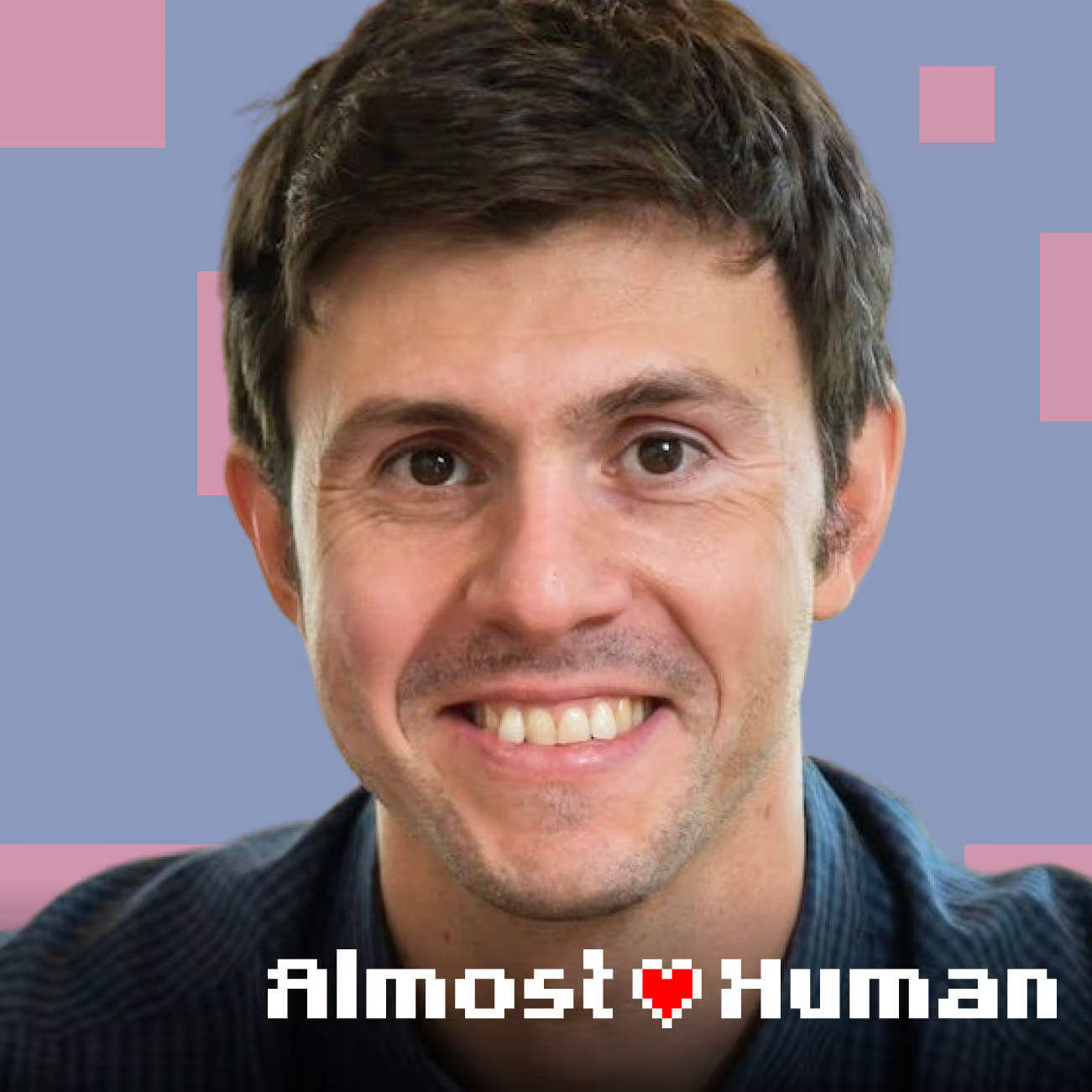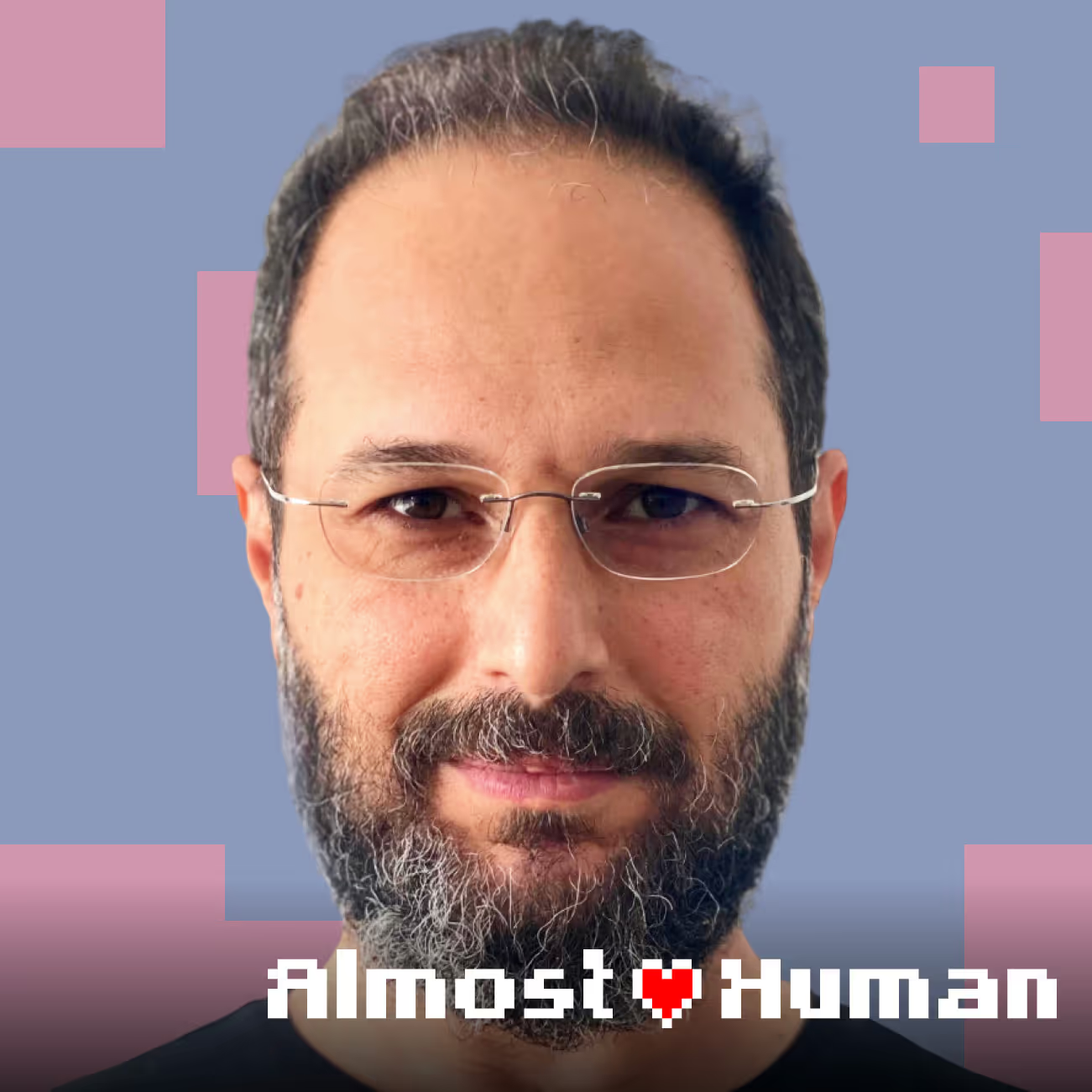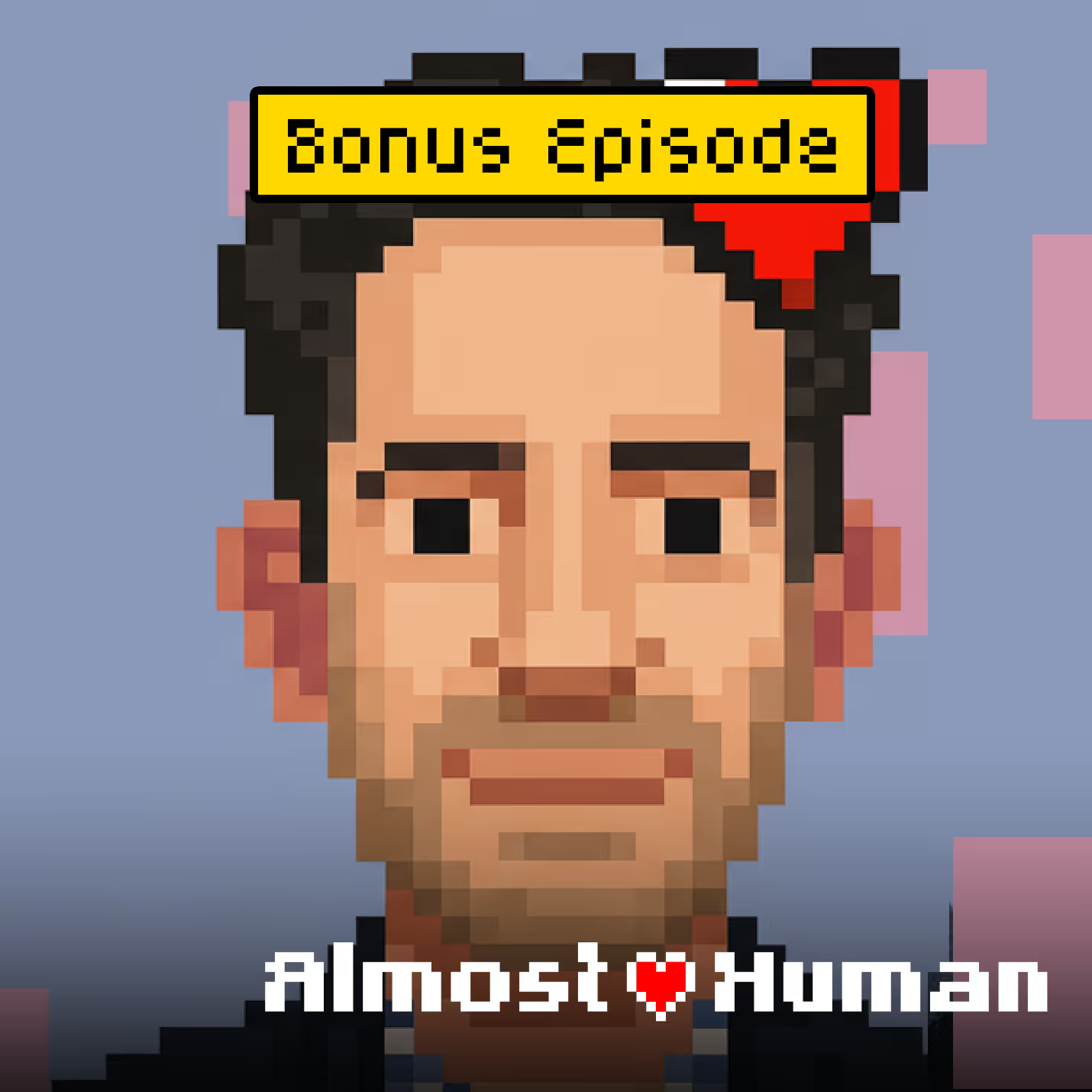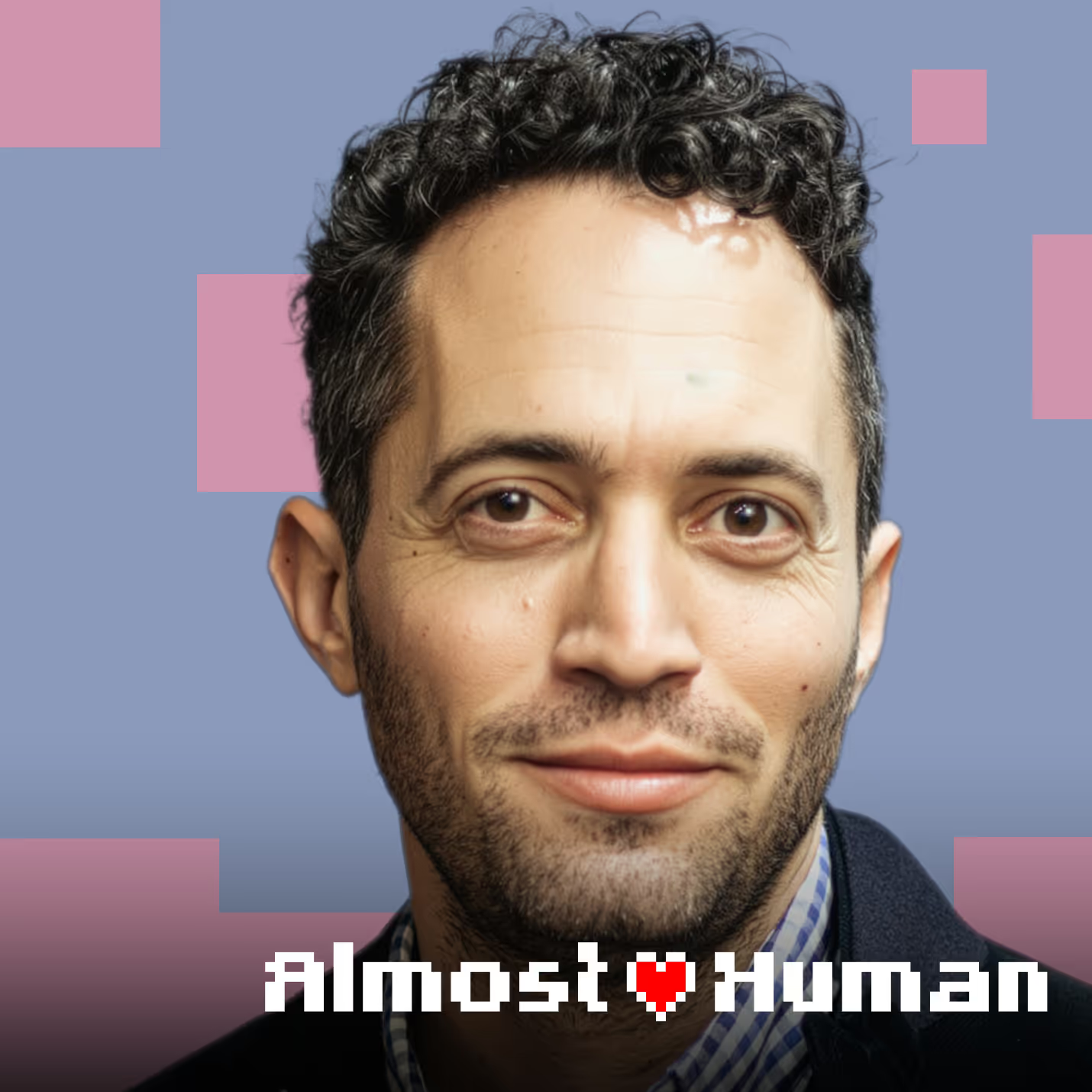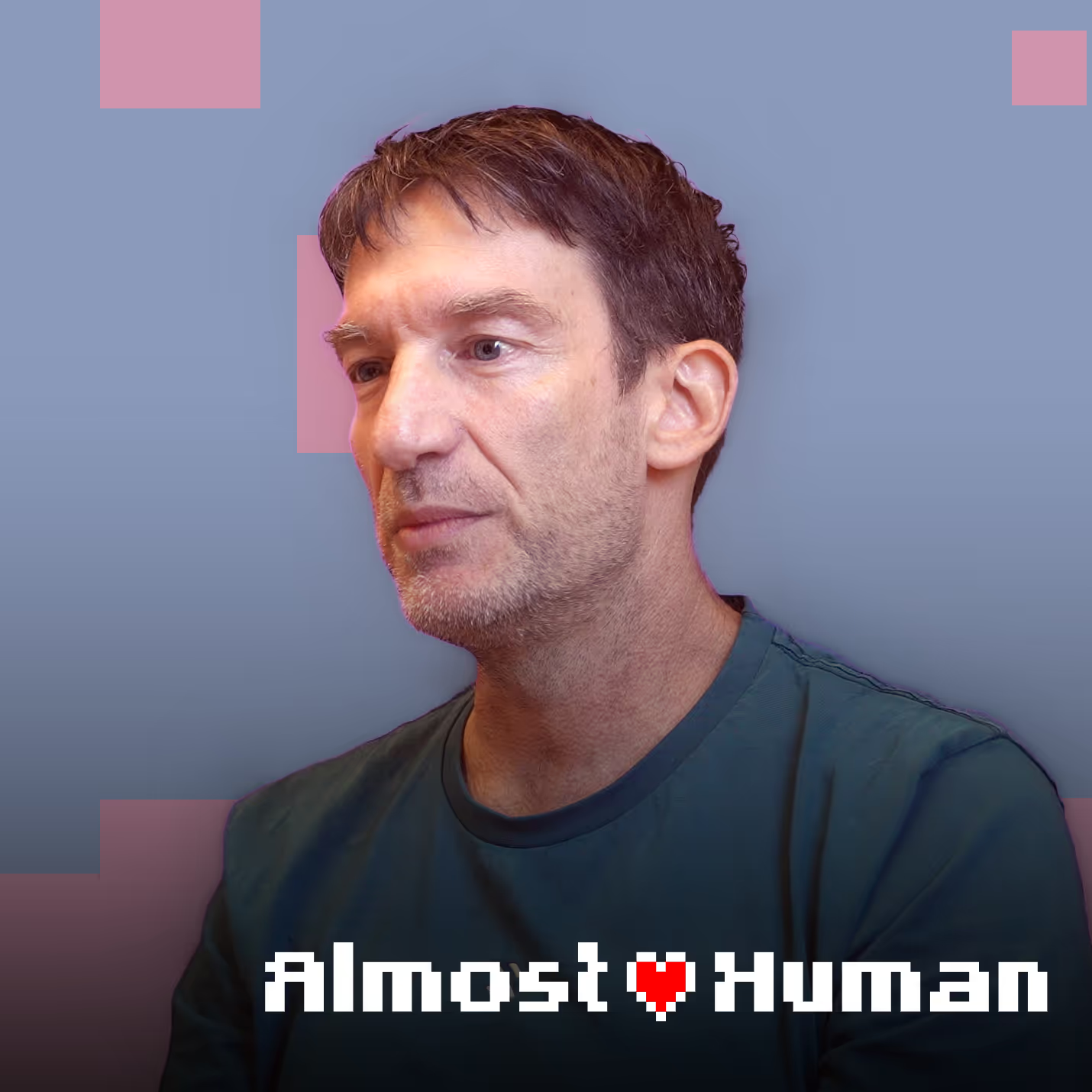Joe Lonsdale



How can values create value? On this podcast, Michael Eisenberg talks with business leaders and venture capitalists to explore the values and purpose behind their businesses, the impact technology can have on humanity, and the humanity behind digitization.
Joe Lonsdale



How can values create value? On this podcast, Michael Eisenberg talks with business leaders and venture capitalists to explore the values and purpose behind their businesses, the impact technology can have on humanity, and the humanity behind digitization.
Joe Lonsdale
Joe Lonsdale

Joe Lonsdale
Joe Lonsdale
- [00:00:00] Intro
- [00:01:36] - Founding University of Austin
- [00:06:02]- Is America a Liberal Society?
- [00:08:53] - AI’s Relation to Liberty
- [00:14:00] - Can the Wealthy Speak Their Mind?
- [00:17:30]- The Heroes of Today
- [00:19:28]- Has American Exceptionalism Eroded?
- [00:23:05] - Founding OpenGov
- [00:27:12] - The Role of Government and its Incompetency
- [00:34:40]- Why Austin is Better Than San Francisco
- [00:37:45] - Having Daughters Changed Joe’s Perspective
- [00:39:55] - Boom of Modern Defense Companies
- [00:45:18] - How to Improve Defense Innovation
- [00:48:30] - Government Efficiency and Accountability
- [00:51:05] - Solution to American Healthcare System
- [00:53:50] - AI Services Wave
- [00:57:55] - Politics Hold back innovation
- [01:05:25] - Joe’s Wokest View and Final Questions
On this episode of Invested, Michael hosts Joe Lonsdale, a venture capitalist, serial founder and philanthropist.
Joe Lonsdale is the Founder and Managing Partner at 8VC, an early-stage venture capital firm managing over $6 billion in capital. In 2003, he founded Palantir Technologies (NYSE:PLTR), a global software company known for its work supporting US and its allies’ defense and intelligence. Since then, he has founded more than a dozen prominent companies, including Addepar, a wealth management platform with about $5 trillion, and OpenGov, the leading cloud software provider for local governments. He continues to create and scale companies through the 8VC Build program.
As an investor, Joe was an early backer of companies like Anduril Industries, Oculus (acq. FB), Guardant Health (NASDAQ:GH), Oscar (NYSE:OSCR), Illumio, Wish (NASDAQ:WISH), JoyTunes, Blend (NYSE:BLND), Flexport, Joby Aviation (NYSE:JOBY), Orca Bio, Qualia, Synthego, RelateIQ (acq. CRM), Yugabyte, and others.
Joe and his wife Tayler are active in a variety of philanthropic and institutional pursuits. In 2018, they founded the non-partisan Cicero Institute, which crafts and advances policies to promote effective and accountable governance, and is now successfully battling special interests with teams in over a dozen states. In 2021, Joe became the founding chairman of the board of the University of Austin (UATX), a new university dedicated to restoring the pursuit of truth in higher education. He also sits on the board of the Ronald Reagan Presidential Foundation & Institute.
Joe, Tayler, and their four daughters live in Austin, TX.
Please rate this episode 5 stars wherever you stream your podcasts!
Joe Lonsdale:
Are wealthy people in the world able to say what they believe? Yes, they actually can, but most of them are cowards, because our society has become a lot wimpier in the last 50, 60 years.
So I think we have a lot of losers out there. I think that culture just, it's a very beta culture where you don't fight. You're very afraid, you don't stand up for anything. You just try to go along to get along. There's lots of very positive things about feminine energy, but it's a very feminine culture for men, which is very unhealthy.
And I think that I was surrounded by cowards. Yeah, so it's kind of horrible. I mean, I love the fact that Elon speaks out. I'm speaking out. We're trying to model what masculine behavior is supposed to look like. And all the left says, “Oh, it’s toxic masculinity.” It's not toxic to speak out and have opinions and be strong.
That's actually what men are supposed to do. If you're not doing it, you're not being a man.
Michael Eisenberg:
Welcome back to the invested podcast. I am thrilled today to have Joe Lonsdale. Welcome, Joe.
Joe Lonsdale:
Thank you, Michael.
Michael Eisenberg:
Joe and I have known each other for many years. Joe is a partner at 8VC, co-founder of Palantir Technologies, which actually reported earnings yesterday, I believe, and they were excellent. We'll talk some more about Palantir. And he’s the co-founder of OpenGov, but rather than me introducing you, Joe, what do you want people to know about you?
[00:00:27] Joe Lonsdale:
Well, Michael, it's good to be on. I'm a proud American and I'm Jewish. I'm a big fan of Israel. We're worried for you guys over there right now, but proud of the country. You know, I guess I've started six unicorns now. I'm a founder of the University of Austin, a new university here. And I have a big policy group called Cicero. So we're doing our best to build new companies and fight for the values of Western civilization.
[00:00:51] Michael Eisenberg:
First of all, I find all the work you do super inspiring, that you’re trying to start a new university in the current climate. And you're even ahead of the hearings on Capitol Hill. What inspired you to start the University of Austin?
[00:01:02] Joe Lonsdale:
You know, I've been talking about it as something that's needed for over a decade. Peter Thiel is a mentor. He was also exploring this idea, had similar ideas about 10 or 15 years ago. And I think he came to the conclusion back then that it was virtually impossible to start a new top university. There's such a strong cartel and so many barriers to entry. And it became more clear, I think about four or five years ago, that things had gone much further downhill.
There was a lot more rot at the core of our great American universities. And so, as sad as that is, that also creates an opening to build new ones and show how better things can work. And, you know, I have to give a lot of credit–my co-founders are Bari Weiss, the creator of The Free Press, and Nial Ferguson, who's one of the world's kind of great academics, great historians alive today.
[00:01:46] And, you know, both of them were also just pushing. I think I met Bari because we were telling both of our friends how much we had to rebuild the core institutions of the West, and both of them were saying, “The moment is now, we have to do this.” And I was in the middle of building so many companies already and running my policy group and having my young kids.
[00:02:03] And so I was like, “Oh, I don't really have time for this, but you guys are right. We have to do it now.” ‘Cause I'd talked to them about the idea before as well. So we pushed it ahead. And of course the timing, it seems to be, obviously was very strong. Obviously a couple of years later, you saw October 7th, and you saw what happened with the reaction of the totally broken universities here. So I think a lot of our people started to realize how broken they were.
[00:02:24] Michael Eisenberg:
And what differentiates University of Austin?
[00:02:28] Joe Lonsdale:
University of Austin is about saving Western civilization. It's about the pursuit of truth. I think most universities are concerned about not having kids be offended as some of their highest value. I think our highest value is actually pursuit of truth, regardless of who's offended. And it doesn't mean you offend people on purpose. I think intellectual humility is important when you seek the truth. A lot of times right now at a university, you assume you know all the answers, you assume that whatever worldview, progressive worldview is exactly right, and you preach. And I think the idea is rather than that, let's study the different perspective, let's deeply understand the dialectics that exist, and then let's debate, and let's argue. And you know, just having a place that's actually open to that, having a place where no one gets shut down, having a really strict constitution about who's even allowed to be shut down to protect people for speaking up is more like how universities worked 100, 200 years ago in the West. It’s not how they work nowadays.
Michael Eisenberg:
[00:03:21] What did you do to protect people's ability to speak up? What specifically did you do?
Joe Lonsdale:
Well, specifically, Neil Ferguson, who obviously studied lots of these things, understands how the world evolved the last few hundred years, wrote the constitution for our university. And actually, specifically what happens at these other universities is the boards will get kind of bullied and intimidated into going along with censoring or disciplining someone. You say someone broke some shibboleth, you know, okay, now they have to be taken out and shot, basicaly.
[00:03:49] You're not allowed to do that. We have a constitution. We have a process. So even if they say something very, very offensive that I, for my business, I'm horrified by because it's going to be, you know, make me look really bad, not make me be able to work anymore–too bad. I'm not allowed to now fire them for that. That doesn't break the constitution if they're making an argument. So I think having protections in place is really important.
And frankly, personnel is policy, starting with people–I mean, Michael, 5,000 professors applied when we started this thing. 5,000 professors. People have no idea the extent to which even people on the moderate left are hounded and attacked and just like demonized inside these places that they don't stick exactly to the script of the far left right now.
[00:04:27] So you have people who are all sorts of moderates that like to speak out and think for themselves, and you base the university based on that, and you’re not ever going to punish someone or demonize them or sideline them for speaking out. And that's a really powerful start.
[00:04:41] Michael Eisenberg:
So to be a bit provocative for a second, does Ibram Kendi have a place in the University of Austin?
[00:04:48] Joe Lonsdale:
You know, Ibram Kendi, if he had an attitude not to cancel people—his viewpoints themselves are not canceled. But Ibram Kendi is explicitly a liberal. He's explicitly somebody who is trying to cancel people. So I don't think that attitude–it's not left or right, it's illiberal versus liberal.
[00:05:07] And this is an enlightenment principle. If you are specifically trying to shut people down, if you're explicitly trying to discriminate against people, like that's not what we're going to do at our school. So those illiberal values would not be a fit, in my view.
[00:05:19] Michael Eisenberg:
Do you think America today is actually what you would call a liberal society?
[00:05:21] Joe Lonsdale:
Some parts of it are, some parts of it aren't. If we didn't have our constitution, we might've fallen another way. I think that a big part of the left in America has become a liberal. I think a big part of the left does what they can to cancel people, to punish people for going out of bounds.
And I think if we didn't have explicitly a court system that was based in the constitution, I think a lot of people might have succeeded in making us no longer a liberal society. I think that's what you're seeing right now in Britain with these riots and the threats that cracked down on them by Keir Starmer.
[00:05:55] He's like, “We’re going to punish you. Anyone online who's encouraging this, who's encouraging, this point of view is going to be punished.” And you see people literally have already gone home to home with the police to punish people for views and for jokes they don't like. And, you know, I think there's a strain on the left in the West right now that's very illiberal.
And thank goodness America has a sound constitution, has sound courts that are all standing up for it. And we’ve got to keep that.
[00:06:19] Michael Eisenberg:
I find your distinction between countries with constitutions and constitutions without them fascinating. So I'll be extreme about it for a second. We're protected with freedoms by a document.
[00:06:32] Joe Lonsdale:
It's a process though, right? So I think systems emerge from processes. And I think anyone with an IQ as high as yours understands how important systems are for the whole, how the whole world works. These things evolve, and they respond, and they have forces that go back and forth. And so having a process that guarantees certain inalienable rights is actually extremely important.
[00:06:52] I think our founders–you see behind me, there's a lot of primary sources of a lot of our founders. You can see a lot of old books back there behind me. And I grew up studying the enlightenment and studying the founding of America. And, as much as there's a lot of new things that are completely different in terms of what's going on in the technology world that you and I work in, I think human nature is not so fundamentally different than 300 years ago. And I think there's some really, really important breakthroughs these guys made in understanding the philosophy to have the base of society, a system tied to inalienable rights.
And if you don't have those rights that come from God or that come from a source outside of the government, it's very dangerous where things iterate towards.
[00:07:29] Michael Eisenberg:
Yeah, you know, one of the things that's fascinated me over much of my life is the Hebraic principles that underlie and serve as kind of the rubric for the constitution, and the Federalist Papers and many other things. Behind me are biblical and Talmudic books. So that's a couple of thousand plus years old.
[00:07:47] Joe Lonsdale:
You got me by a couple of thousand years. My wife and I do study Talmud as well. But I am very focused these days on the principles of government from our founders, and frankly from people like Cicero as well, because there's a lot of wisdom from there. There's two different strains. I think I do like the Judeo Christian principle to leave unto Caesar what is Caesar's.
I think you have to have different strains of faith vs. politics hopefully.
[00:08:09] Michael Eisenberg: Yeah, I tend to agree with that. But tell me how you think, for example, you're a co-founder of Palantir, an AI company. Where do you think that AI software kind of perhaps, amplifies or threatens these basic freedoms and ability to speak up?
[00:08:28] Joe Lonsdale:
Yeah, no, that's–gosh, we've been arguing about this for a couple of decades. You know, Palantir, it's funny enough, it is an AI company now, and it's an AI company for a good reason. We started off as a company, a data infrastructure company that was organizing data ontologies and workflows and ontologies in ways that really kind of productized a lot of services–worked around understanding the data, understanding how it was used. And it turns out that a lot of hard work Palantir did over 15 years actually ended up setting it up perfectly, it turns out, for being harnessed for AI. So it actually was explicitly not AI company when we started it, because you know, every government agency wanted to build a ‘find terrorist’ button.
And so it turns out you couldn't build a ‘find terrorist,’ button, but you could like, help people to organize it, for humans to be able to use it. And, you know, at this point, you still can't build the ‘find terrorist’ magic button, but the AI could do a hell of a lot more than it could before. It's obviously getting quite strong.
And, you know, and so there's this view that I think Peter Thiel–I can't speak for him today, but I guess the old view would be that, like, crypto was like a pro-libertarian thing, and it was like kind of getting around government's control of money and other things, and then AI was like a pro-authoritarian thing.
It's like a very simple, high level kind of model of that, where AI made the government stronger and smarter and could see what everything was going on, and it's kind of a scary thing. You know, I think there's definitely some truth to that. It definitely, AI definitely does let you have a bigger, more intrusive authoritarian government.
It's also obviously something that makes businesses much more productive, and it creates massive amounts of wealth in the world. So, you know, and I guess the question is, are there ways you can use AI for liberty? And I do think that the ability for very small groups or even one person theoretically in the future to build big companies and to create great things using AI, like does give a lot more autonomy to individuals.
It does make it so you don't probably need as much an overbearing government. Like you actually make government a lot smaller, for example, with AI, because you can outsource like so many things it does. You don't need a million bureaucrats anymore if you have AI. So in some ways there could be ways in which AI enables liberty, but it is a very scary tool for authoritarians right now. I think that I think Peter's intuition is correct there.
[00:10:46] Michael Eisenberg:
I made the argument at a conference in Abu Dhabi that I spoke at, I don't know, six months ago or so, that AI, because it's so powerful, like it can empower individuals to build their own companies, it can also empower mediocre hackers to become great hackers; it can empower people who don't know how to develop bio weapons to develop bio weapons, and by the way, at the same time, to the point you're making, the current framing of AI is like in service to the Chinese Communist Party, the CCP.
So it's also kind of an authoritarian thing. And one man's view is more compute power increases entropy in the world because of both of those things. And I wonder how you react to that and think about how we leverage this for more freedom and, call it, less chaos and less authoritarian government.
[00:11:38] Joe Lonsdale:
Well AI ultimately creates a lot more wealth. Let's just say for the sake of this discussion, you probably see this in your portfolio companies. I see it in mine. There's ways in which it's working. It's increasing productivity. It's making services work better. It's going to create a lot more wealth.
So in a world that you fast forward, hopefully, if we don't all, you know, kill each other with these potential wars coming up right now, and hopefully we find peace–like I'm terrified of the Red-Black Alliance, we call it, that took over Iran, and that it's taking over other parts of our world right now as we speak–but to take the war stuff aside, if AI makes the world a lot wealthier place in 20 years, I think that actually does create more freedom. It's not the default that happens automatically, but you've seen as the world gets wealthier, people tend to want a voice and people tend to want some sort of freedom.
And basically people tend to be enabled to get that as well. So if you think of our society, if everyone's like a multimillionaire, you probably have all these space hotels. You probably have colonies on Mars. You probably have all sorts of new cities you could build under the ocean because you have the wealth and the ability to do so.
And I think with all this room and with all this wealth, it creates a kind of a new birth of freedom, in the sense that there's new cities, there's new countries, there's new innovation in government. There's all these new ways of doing things. So I think the more humans can experiment with government, the more we can experiment with ways of living, the more we can learn and see what works, the better chance we have to kind of escape authoritarian grasps on ourselves, escape this kind of top down, you know, censorship, et cetera.
So it's definitely dangerous, but this wealth probably could be a very good thing for us overall.
[00:13:19] Michael Eisenberg:
You equate wealth with freedom.
[00:13:22] Joe Lonsdale:
Not perfectly, but I think it enables it on the whole.
[00:13:27] Michael Eisenberg:
Do you think the wealthy people today are free to speak their mind right now? Because I was talking actually to a guy who's an agent who I know since I grew up. I didn't know he was an agent until about a month ago. And he told me his job over the last decade was getting people who were canceled, and getting them back on their feet. And these are all very wealthy people who went into a cocoon despite their wealth because they felt unfree to speak their mind. So is it really true that wealth enables freedom and people to say what's on their mind? Or is it only unique people like Joe Lonsdale who speak their mind?
[00:14:02] Joe Lonsdale:
It's definitely not true that wealth perfectly enables freedom for sure. I think we've seen this with China. China has become a lot wealthier and it's not free. And I think this is why the principles of the founding of our country are so important. You do have to have these principles. You do have to understand human nature. You have to fight for checks on power. Now the point I was making is much more that in a world where there's an immense amount of wealth, it's very likely you conduct experiments in governments, in new cities, that you couldn't afford otherwise–that actually could lead to a lot of examples of freedom.
So I think overall, I'm optimistic that what that wealth can enable is us to experiment and to be able to prove freedom. Now the question you're getting at–are wealthy people in the world able to say what they believe? I actually think this is like one of the more interesting questions of our time in the sense that, yes, they actually can. But most of them are cowards, because our society has become a lot wimpier in the last 50, 60 years.
[00:14:54] So I think we have a lot of losers out there who are kind of like, basically, you know, as kids, like even when I was a kid, I guess it was somewhat rare–like you'd get in fistfights with other boys and you become friends afterwards. By the way, this is what happens when you get in fistfights with other boys.
[00:15:09] And it's actually a healthy thing. This is how little boys are supposed to work. And I think that culture just, it's a very beta culture where you don't fight. You're very afraid, you don't stand up for anything. You just try to go along to get along. There's lots of very positive things about feminine energy, but it's a very feminine culture for men, which is very unhealthy.
[00:15:31] And I think I was surrounded by cowards. Yeah. So it's kind of horrible. I mean, I love the fact that Elon speaks out. I'm speaking out. We're trying to model what masculine behavior is supposed to look like. And all the left says, “Oh, it’s toxic masculinity.” It's not toxic to speak out and have opinions and be strong.
[00:15:44] That's actually what men are supposed to do. If you're not doing it, you're not being a man.
[00:15:48] Michael Eisenberg:
And why do you think it happened? Why do people become reticent?
[00:15:51] Joe Lonsdale:
I think our culture went in a direction of very anti-masculine. It's very anti-bold.
Michael Eisenberg:
Why?
[00:16:00] Joe Lonsdale:
I think our universities were taken over by that energy. I think the culture's always swung different ways. I think you could say it was too toxic masculine a hundred, 150 years ago. You know, it's really funny if you read about the duels and the founding of our country where people are just like shooting each other for no reason–and it's like, guys, this is ridiculous. Like that's toxic masculine energy, when you're randomly having Aaron Burr shoot one of our founders and kill him for no good reason. So I think cultures swing in different directions. And our culture, I think we identified properly that women were being treated really unfairly.
[00:16:35] And that became a cause that rightly was taken up, not just by suffragettes, but by a lot of people in our society, to try to bring equality for women. And I think the pendulums swing, and it’s swung so far that it basically took away a lot of the masculine energy that makes our society healthy.
[00:16:50] Michael Eisenberg:
You've spoken in the past about the need for heroes, and clearly if I look behind you, you probably think that Madison, and Hamilton, and Jefferson are heroes, quite obviously. I imagine you can probably identify a lot with Alexander Hamilton based on the last–
[00:17:06] Joe Lonsdale:
He’s a little more a statist than I am, to be honest, but he's a very important man.
[00:17:10] Michael Eisenberg:
We'll come to that soon, on being a statist. Who should be the heroes today? I actually interviewed Cooperman recently, you know, who I think is just a hero of American capitalism for sure. Now, but who are the people you consider heroes? That people should be looking up to and that movies should be made about, because that's how we define heroes today.
[00:17:30] Joe Lonsdale:
Listen, I mean, Ken Langone, who I just interviewed, is a hero of mine.
[00:17:34] Michael Eisenberg:
Ken Langone, I said Cooper, you're right.
[00:17:36] Joe Lonsdale:
I think Ronald Reagan is definitely a hero of mine. The way he stood up and was bold, and went against things and was strong. I mean, it's trite, but I think Elon Musk is doing something that's really saving Western civilization, and of course that means there's people who are gonna be really angry at him about it, but to actually take X out of the control of the kind of government censorship complex, and out of the complex of everyone's thinking the same way, and to let it be free is such an important thing. And to build everything he's built, I think it's just amazing. I think there's lots of builders who are heroes in some sense, but I think builders who also get involved and are also bold in what they believe in. And listen, there's a lot of political leaders. I think no one's perfect, right? I understand a lot of arguments against Netanyahu, mistakes he made, all these types of things, but I mean, some of what he's done is also very impressive–to be that bold and be fighting for his people that hard, and to care that much over such a long time. It's a very hard thing to do. It doesn't mean that he's like a perfect guy, or that he's not wrong about things.
[00:18:36] So I think just strong people who fight for their countries and who stand up for what they believe in, and who are bold and who are talented. I mean, those are the people we should celebrate.
[00:18:46] Michael Eisenberg:
I sense, you know, I grew up in New York, moved to Israel. What I grew up on is what I would call ‘American exceptionalism.’
[00:18:54] This notion that America is an idea. It's not just a place, it's an idea. It's not just a place that gathers people–talented or less talented people–it's an idea that you can come to America and be exceptional. America is an exceptional country, ergo America's values are better than the world's values. I feel, for what it's worth, that in the notion of Abrahamic values, you have the same thing.
[00:19:16] There's Abraham chosen by God, so to speak. And, you know, the question I would ask you is, do you think that this idea of American exceptionalism has been eroded? And if so, how do you restore it? And is it even important today?
[00:19:30] Joe Lonsdale:
American values come from really three sources, right? So America is obviously a people we have to fight for, but it is also exceptional thanks to its founding principles.
[00:19:38] It's both. I think J.D. Vance makes a very important point that we have to be fighting for the people as well and not just the values. But the values I think to me come from three different traditions. They come from the classical tradition of virtue, right? And the four classical virtues, which is obviously courage, and wisdom, and temperance, and justice, which are all extremely important.
And there's a lot of tradition that comes from the Greco-Roman background that is just kind of core to who we are. My institute’s name is Cicero, an institute out of a lot of the principles that drove the Renaissance when they re-emerged. And then you have of course the Judeo Christian principles, which are extremely important, which you're talking about with the books behind you, and the Talmudic wisdom and the wisdom that really comes from our religion. And you obviously have the three virtues of faith, but then you also have all sorts of other wisdom that's critical that we learn from the Jewish and Christian traditions.
And without those, we don't have the West. And then you have, in a lot of ways, but a lot of people don't realize today–I think a lot of people are brought up in school today thinking science and religion are opposites. And obviously there's ways in which they don't always align, but I think it's very clear if you look at it, that Christianity did a lot of things to pave the way for the enlightenment. And it was only possible thanks to the Judeo Christian tradition. And then you have the enlightenment, you have enlightenment values and the enlightenment values that led, through John Locke, and through Adam Smith, and David Hume and all the rest of the Burkean values, to understanding of what it took, basically, to have a functional government with checked power, with the natural rights of man.
And those are absolutely critical, and that really was an amazing philosophical height that our civilization was able to reach, thanks to the combination, in the late 18th century, of these three different traditions, really expressed in an extraordinary way. And yes, with the heroes that stood up and founded it and fought for it. And there's just so much wisdom there that enabled America, and enabled, obviously, a lot of the West at the same time, that I think we're not taught today, that we're not as thankful for as we should be.
[00:21:39] And if we lose some of that, then we regress. And I think if you see a lot of politicians today, a lot of views today, a lot of things we fight over–they don't pay any heed to a lot of that wisdom. And yes, we regressed, and things are broken, and things are messy.
And it’s very easy for them to claim the world's very different today than it was back then. Of course the world's different, but human nature is not different. And the insights and the importance of checked power, and the importance of liberty, and the importance of all these things, and all the history that we've kind of built up to that point is critical. So it is very frustrating to me that we don't have some of those yet.
It’s definitely regressed in the sense that we're not teaching it in our schools. Like Thomas Jefferson, the number one reason he wanted the mass public to be educated is to understand the danger of despotism, and the core principles of our country, and we're not teaching it. So that is a problem.
[00:22:23] Michael Eisenberg:
You know, I asked Balaji, our mutual friend, what I should ask you on the podcast, and he said to ask a couple of questions. Number one: Why'd you invest in OpenGov, and why is OpenGov so important? I think it relates to this. And then I'll get to the second question, which I think also relates.
[00:22:43] Joe Lonsdale:
So OpenGov–I was a founder of OpenGov, founder and chairman. And the reason we created it is that we'd had a nonprofit, one of my early nonprofits. I'm always trying to start these things to fix problems. And I was living in California. It must've been, gosh, like 17 years ago now. And California kept raising taxes, and they had so many government employees.
[00:23:04] And I'm like, where is this money going? And what's happening? And we kind of mapped it all out with a nonprofit. We put all these states, different states’ budgets online for the first time in California, and we did regressions, right, and compared it. And you would see that California was actually pretty reasonable in some areas.
[00:23:18] And then in some areas they're spending like 50 percent more than you'd expect in that department, just based on the regression. And regressions are pretty accurate in these things, ‘cause you can see the size of the state. There's a number of factors, right. They usually predict spend. And it's really accurate for most states.
[00:23:30] And you're like, whoa, California is way off on a few areas. And each of these areas have really strong government unions, it turned out, special interests. And so this is really funny because I had these Stanford students doing the work, and they just published it under their own names. And these Stanford students got raked over the coals in the press, because these unions were not happy to be attacked.
[00:23:47] But it was fun because we got a ton of attention, and all these cities started writing to our nonprofit and being like, “Oh, this is great.” The city managers, “Can you do this for us too? We'd love to see what you think of our spending.” You know, that's cool. Send us your data. And they'd be like, “Oh, how do we send the data? Our IT services guy says it'll be a 50,000 or a hundred thousand dollar fee to get you all this data.”
And we're like, what is going on here? That's kind of ridiculous. And it turned out, most of them didn't even know how to compare themselves to the city next door. Like they just didn't, they couldn't get access to the data. They're running off of these literally black and green screens, or black and white screens. And this is now only 15 years ago, 2009. Okay, and the cloud is just starting. Like, wait a second, this is a mess.
So we realized that this nonprofit was not going to be able to change the world by itself, but that if we kind of basically hired some really strong engineers, built a tech-driven culture, a sales-driven culture, we might be able to go to thousands of cities and state agencies and actually fix them and see what's going on, that'll run their processes.
[00:24:41] And we learned a hell of a lot about GovTech. I don't need to go into all of it now, but, you know, it ended up being that we sold a company for 1.8 billion this year called OpenGov. You know, it helps thousands of governments, and it made a pretty big difference in the space. And so, you know, it turned out that the building part was actually what really helped. Building as a company was much more effective.
[00:25:00] Michael Eisenberg:
You know, what makes me chuckle is I actually was one of the first donors to the same project in Israel, Open Budget and Open Knesset. And it kind of, because we didn't make the transition to a–
Joe Lonsdale:
It dies off, it's just a non profit, right? It can't keep going.
Michael Eisenberg:
Totally. And Israel probably couldn't support a commercial company at the scale that you could support in the United States. No one would buy it for 1.8 billion shekels, even, forget about 1.8 billion dollars.
[00:25:24] Joe Lonsdale:
You know what's amazing? I met the guy, Nandan, who runs, oh gosh, it's the big, The Emphasis, I think it's called in India. And he did the same thing because he has extra Emphasis engineers and nothing to do, because they have so many of them there.
And in India it’s still a nonprofit, but the government's paying for it. But they did it there too. So I guess each of us in our own way have built these things for our countries. We probably should have combined forces at some point, it would have been more efficient–
[00:25:45] Michael Eisenberg:
But I'm fascinated by the way you tell the story, which is the same story as Palantir, which is just–organize the data. And I think, you know, one of the advantages, I keep saying this about one of our companies, Lemonade, versus the other insurance companies is getting AI right. Getting analysis right. It has a lot to do with getting your data organized, and so many of these legacy institutions can't get their data organized.
[00:26:04] Joe Lonsdale:
Yeah. We talked about it in the course of dynamic ontologies, where you're mapping out, cause you'll have, I mean, the CIA and FBI are actually each hundreds of different departments and each had different schemas. And so you're mapping it out and tying it to each other, but you're not just mapping the data, you're mapping the workflows as well, which I think is a really important point–which is, you have all this data and now you have to understand what are the workflows, and how is the data used. And if you can map out both the data to talk to each other, and the workflows, and you understand it, then all of a sudden there's like all these cool things you do with it. That's my framing.
[00:26:31] Michael Eisenberg:
So going back to Balaji's question, he says, “Joe's a pragmatic, libertarian-ish conservative, similar values to me and you,” he says, “free speech, free markets, but also strong on defense. He's more of a ‘minarchist’” - I'm not even sure what that means–“or a good government conservative rather than an anarchist.”
[00:26:51] Joe Lonsdale:
I think a minarchist might mean a minimum-sized government. Is that what he's going for?
[00:26:54] Michael Eisenberg:
I don't know. So, you audited the government with OpenGov, that was oppositional, but then it became a product for governments to use, and therefore it's cooperative. So, I think what Balaji is trying to figure out, and this may be the comment you make about a minarchist, which is a minimal government guy, is where do you stand in this political philosophy question of are you libertarian, are you small government conservative–a minarchist as he calls it–or somewhere else?
[00:27:22] Joe Lonsdale:
You know, I think a government's job is to serve the people. And so I'm not opposed within the set of, you know, there are principles and there's ethics around what government can and can't do. But within those constraints, it needs to fight really hard for whatever's best overall for its population.
[00:27:39] And I think that's where the conservative movement's going. And I think there's nothing that's necessarily wrong about that as long as it's constrained to the proper principles. That said, if you go back to like, we're talking about this in the sense of the American founding, a sense of those things, like, yeah, the government should be as small as possible, but then also as competent as possible. Because if it's going to be doing things in our society, and by the way, it's doing a lot more in our society than it ever was going to in the past.
And if it's doing that, and it's incompetent, that's bad for everyone. And this is what drives me crazy, Michael, is that, you know, even the commies back in the fifties and sixties, they wanted government to be smart. I was hanging out with Clarence Jones the other day. He's 93 and he was like the smartest lawyer. He's an African American, smartest lawyer on Martin Luther King Junior's team. He was Martin Luther King Junior's right hand. And he and I do not align on politics, although he's also annoyed at the modern woke stuff, but we don't align. He was basically a communist sympathizer, you know, in the fifties and sixties, but an amazing man, a leader of the civil rights movement.
[00:28:39] But he's all about Black excellence. He's all about excellence in general. He wants things to be smart and competent. And we desperately need that in our government these days. Like what is the big gap in the U.S.? There's about nine million workers paid for by D.C. It's actually about nine million. Three million or so are paid directly as bureaucrats in D.C. About 4.2 are paid for with contractors, and then another kind of 1.8, give or take, are paid for by D.C. that exists at the state level. So it's nine million workers, and it used to be government workers. Did you know what the Pendleton Act was? Have you heard about this in 1883?
Michael Eisenberg:
No.
[00:29:18] Joe Lonsdale:
So basically governments tend to expand a lot in war, right? In wars or crises. So Civil War, Abraham Lincoln created all sorts of new departments. If you track it out for all government, all of a sudden it starts growing a lot bigger. And it becomes this mess where everyone's just appointing their friends and then getting their friends rich to get elected, and everyone on both sides is like, okay, this is intolerable. We gotta fix this. It's like a bunch of cronies who are unqualified just running around D.C. throwing around money. And so in 1883, you pass the Pendleton Act, and we say, listen, to get to be in charge of any of these things in government or even to like work there, you have to pass a test.
[00:29:46] And the test is harder to be in charge, but it's harder to work there, too. And this test iterates over the years. But up until the late 1970s, there's these pretty hard tests. And there's different exams. And, you know, actually it's funny that even in the 1970s, Americans are just disgusted, because after World War II, government also grew a lot bigger.
[00:30:02] And like, okay, we have to reform it again. It's a total mess. Tons of paperwork everywhere. Jimmy Carter actually gets the nomination, because he in Georgia took hundreds of departments down to only 22. So even he has some track record of doing this. And unfortunately, because the government units have become so strong, they put poison pills into all his legislation and he really can't reform it in the late seventies.
[00:30:21] So even he was trying to reform it. And then to make matters worse, the leftist activist courts in the late seventies, they say, “You know what? These tests are letting more white people in than black people, because more black people scores are lower. So we're going to get rid of them. These tests have quote unquote “disparate impact.’” And so this is basically what we call proto DEI, you know, DEI today, you have a proto pharma DEI starting about 45 years ago. And the Reagan administration settles it, knowing they'll lose the courts in ‘81, and the tests are gone. So these tests we had for 98 years, like when we went to the moon, we were doing all these things.
[00:30:51] We used to have somewhat competent people in the government. I'm not saying the government's great, but at least it was smart people. Now they're hiring millions more people and none of them are passing tests. And this, by the way, is not against like the Hispanic and black people that didn't do as well.
[00:31:04] This is also against the white people who couldn't pass the test. There's tons of white people working for government today that never would have been there, but we're not testing them anymore. And so you basically have this just viciously incompetent government that's getting worse and worse.
And what do you do, Michael, if you're not accountable, by the way? You can't fire these people anymore, either. That's the other thing I didn't say. You're not accountable. You're not competent. Well, you're going to spend all of your time virtue signaling, because that's the only other thing you could do.
You're not being held to any kind of account for profit or anything. So of course they're just like woke as hell, and it's a total mess. And so I mean, I don't know exactly what principles that is. I guess that's on the right, but I hope smart people on the left would agree with me.
[00:31:41] Like we don't want a giant, incompetent, unaccountable government. That's just retarded.
[00:31:46] Michael Eisenberg:
I have a lot of sympathy for that perspective, as I’ll get into a second. David Fisher, the former Chief Revenue Officer at Facebook and at Google, told my daughter over a Shabbat dinner, when she asked him for some advice, he said, “Just be competent. 98 percent of the people aren't, especially when they don't have to be.”
Joe Lonsdale:
Especially when they don’t have to be, right? It's like, it's terrible.
Michael Eisenberg:
So, you know, I'll challenge kind of a notion that I think you referred to, or maybe amplify it. I've been making the argument in Israel because, you know, we have the same people who are soldiers, and reserves, and the same people kind of contributing to the economy, where a lot of Western countries have gone sideways, the United States included, is it’s focused on the periphery–that's part of the DEI thing–and it ceased to invest in the excellence and the growth and the competence of the core of its society, irrespective of obviously gender, skin color, like nobody cares. We just want the people who are true to the ideals of the country and those who want to be competent and be in service, you know, to speak about the virtues that you talked about earlier.
[00:32:51] But instead of what we've got is, we've gone to the fringes, so much so to use the obvious Olympic parallel right now, or the swimming parallel–we have men beating up on women who spent, you know, 200 years trying to get equal rights for 50 percent of the population. So we've got these fringes that are really impacting the core, because they've been amplified. And that feels like we've come off the rails, and government should be investing in the core of the population, not the fringes. Do you agree with that?
[00:33:16] Joe Lonsdale:
Yeah. I mean, but why are they focused on the fringes? Right? I think you're right. But why are they? It's a couple of different things, but I think it's because they don't want an environment of accountability. They don't want an environment of competence and of merit. And if you don't have that, you have to focus on something else instead, right? And it turns out you can't, organizations really can't have multiple gods.
[00:33:38] It doesn't work that way. If you're going to be telematic about it, it's not possible to practically have multiple. You end up with kind of a focus or not. And so people pretend, “Oh yeah, we're going to have merit, but we're also going to do this, we're also going to do that.”
And then you end up prioritizing something else that just breaks the core, and it's, I mean, some people say the Marxists are doing it on purpose, where like Marxists want things to be broken in order to kind of have society be transformed radically, because you have to first break it before you can transform it. So there probably are some of them that are doing it for that purpose.
But I think it's also just this thing where like the system can't work if certain people are trying to do all these things at once.
[00:34:20] Michael Eisenberg:
So you left San Francisco where you were living and moved to Austin. Why'd you leave? Did it have anything to do with this?
[00:34:31] Joe Lonsdale:
Yeah, it's probably tied to the quote unquote, ‘woke mind virus’ a little bit. It’s a lot of practical things in my life, right? I wrote a piece in the Wall Street Journal about it when I did it. It's like all the people we work with who aren't rich have to commute an hour and a half if they want to come to our house, you know, our office in San Francisco has gotten way too expensive for everyone who's not wealthy.
[00:34:51] The schools are taken over by crazy people. They're yelling at kids about gender at the private schools nearby. And you have kids pretending to be cats, scratching people. I mean, the whole thing is just, it's insane. Or you can't even believe it. You know, I hired a lot of people, I build a lot of companies.
So I've built obviously three big defense companies. I built big things in finance and healthcare, and we're doing a lot of other stuff. And when we want to hire people, their spouses will basically resent me, because when we hire them to the Bay area, even if they're making a few hundred thousand dollars, they're still like barely getting along there, you know, it’s so expensive. And so it's not a fun place to bring people.
So we were actually hiring, we hired over a thousand people already in Austin. It's one of the cities where we were scaling our companies even before I moved here. And so this was a great place.
[00:35:31] We love to build and we love to expand our companies too. And, you know, I'll be honest, like it's not like the number one reason, but my wife was seeing all this money we're making, and it's like, “Joe, we both agree, Sacramento is filled with kind of like really crazy evil people who are using their money on special interests and horrible things. It's not ethical to feed this beast, right?” And so I think she's right. But there's a lot of different reasons. But, you know, at the end of the day, Michael, I want to live in a place where I'm proud of it and I'm fighting for it. And I'm contributing to it.
[00:36:02] I'm able to talk to the governor here. I'm able to fight for the values I care about. I'm able to admire what my state's doing. And that's really important to me.
[00:36:10] Michael Eisenberg:
Why would somebody less influential than Joe Lonsdale want to start his company in Austin versus San Francisco?
[00:36:16] Joe Lonsdale:
I think there's a few different reasons. One, if you're raising a family, you don't want your kids to be like weird communist. They try to take them away from you if you stop them from transing them. I think that's like a big deal, if I'm going to be extreme about it. Two is like, you're unethically feeding money to something that's against your values and people who are horrible.
[00:36:35] Three is like, it is more dangerous in San Francisco. The quality of life is lower. So what's going on there? There's like random people rampaging malls and stealing things in front of you and shutting down stores. I think it's a mess. And I think Austin has lots of great talent.
[00:36:50] It has a lot of top entrepreneurs here. It's people like Elon Musk, and myself, and dozens of others who've built big companies, Michael Dell, Joe Lamont, just amazing people, amazing new things being fought for society here. And just to be part of like a dynamic, healthy ecosystem, as opposed to be part of something that's, that's broken and decaying is an exciting thing.
[00:37:11] Michael Eisenberg:
I feel the same way about Israel. I get excited every day to come build the country. And I think it's a place for builders and a place for people who are optimistic. You need to be with Iran threatening drones and rockets. But I feel the same way. You know, you mentioned your family and a place to raise kids.
[00:37:25] So Drew Otting, who is your partner, and we both know, he had a great question to ask you. He said, “you just had your fifth child, Mazel Tov.”
Joe Lonsdale:
Thank you.
Michael Eisenberg:
And he said, “You added a son to your tribe of four daughters.”
Joe Lonsdale:
That's right.
Michael Eisenberg:
But you grew up with only brothers. I did not know that about you.
[00:37:44] Joe Lonsdale:
I'm one of three boys. I'm the oldest. So it's very interesting having daughters.
[00:37:47] Michael Eisenberg:
So how does having all these women around you changed your outlook on the world, on business, and other things?
[00:37:55] Joe Lonsdale:
Well, my daughters are amazing. I'm very lucky. I definitely feel I understand women at least a little bit better now than I did before, because I didn't understand them at all before. I can see how men and women definitely come from totally different perspectives, and a lot of different problems, and how important is like–some of these little human and emotional touches are just so important to little girls, in a way that I think a little boy would not even notice if you looked at him or not.
When you came into the room with the little girl, it's like, that's like her whole thing. Like, is Daddy paying attention to me? And she's gonna get her confidence from some of these things. It's just interesting ,male and female brains are clearly totally different. So it's very useful to understand that in terms of interacting with the rest of the world, and listen–I think both feminine and masculine energy are just critical to have a healthy world. And if you have too little or too much or they're the wrong parts, then it makes society unhealthy. So I think we need a healthy feminine and a healthy masculine and both sides need to be fighting for the other side.
[00:38:58] And so I think I understand a little bit better, hopefully, how to contribute towards that and how to understand the beautiful feminine energy of lots of little girls.
[00:39:05] Michael Eisenberg:
Has it impacted your investing at all?
[00:39:09] Joe Lonsdale:
You know, I've worked with some brilliant women. I still do. And we've had amazing female CEOs in the past who have been very successful. And it made me understand certain things a little bit better, to make myself like better able to interact with people or something like that, thanks to having lots of girls around me, but I'm not sure it's changed the core investing frameworks or anything.
[00:39:34] Michael Eisenberg:
So you're building a university, you started this organization Cicero, and you're still investing out of 8VC and creating companies. What are some of the areas that you've invested in, call it in the last 12 months? And has anything changed about your investment strategy over the last 12 months?
[00:39:50] Joe Lonsdale:
Well, you know, we've been doing a little more defense than usual. That's my background. So doubling down on both Chaos, and Saronic, and another round of Epirus now. Those are three companies in defense that are very important. I could talk about that if you're interested.
Michael Eisenberg:
Yeah, do so.
Joe Lonsdale:
So the framework, of course, is that Palantir was the first new defense prime in a long time, followed by SpaceX, followed by Anduril, which we backed in the first couple rounds.
[00:40:13] Anduril, everyone I think knows who's in this world, is started by three of my former colleagues from Palantir, with Palmer Luckey and doing extremely well. Just raised 1.5 billion at 14 billion post, and have all sorts of different types of leadership, things that are breaking through and helping the U.S. military and allies, and delivering things on time ahead of budget, etc.
And so those three companies just kind of blew the world away and like, have changed the perspective of the generals and admirals to say, “Wait a second, these new companies are just so much better than anything that primes are doing in a bunch of areas, like we need to work with newer companies.”
[00:40:44] And so even today, unfortunately, you're still spending like 30 times more on the old companies than anything new. I think it's like about a percent on new companies, about 30 percent on the primes for the whole defense budget. But you are seeing now suddenly a [00:41:00] lot of generals are almost like, “Wait a second. What else is the top new company we can work with?”
And so there's a whole new generation of maybe like, five, six, seven, eight new top companies under these three that are coming up really fast. One of them we started right after Anduril was called Epirus. It's the top HPM in the world.
[00:41:17] So I think Israel has the best lasers in the world right now. It's shooting down drones. I was with the defense minister last year, was very proud of how much money he saved for every laser shot, which I thought was very funny. It's just stereotypical my mother, who's Jewish, would always talk about saving money, but it's just true.
It's amazing how you save like a million dollars with a laser. And we have something related to that, which is that we have a high-power microwave, EMP blast that has a very long range, take out swarms of drones, fries electronics. We figured out how to use AI chips to amplify things and, you know, advanced electronic warfare we've been developing in the U.S., like modified by the new AI stuff, can, is just by far the best. And we can put it on stuff, and turn things off from far away. So that's a really important company changing the landscape of battle.
There's actually like a Moore's law for the power of the GaN emitters. And I think we're gonna be able to turn stuff off from tens and tens of miles away, pretty soon, dozens of miles away, which actually really changes warfare. So that's very interesting. Another one that just raised a big round that we've been talking a lot about is Saronic.
Saronic is teaching the U.S. Navy how to use AI, and we're going to be producing hundreds and then thousands of small weaponized vessels. It turns out that, you know, if China could build 200 times more ships than us, we have to have a response that's not just like–we're not gonna be able to build enough big ships, but it turns out that lots of different types of different small ships that coordinate in intelligent ways actually is a much better way to fight.
[00:42:38] It's much harder to take these out at scale. It's much cheaper to build a better fighting force this way. So we're completely transforming and augmenting the Navy with that. And some, some of the leading animals have been great. So that's going really fast. It's going to totally change things there.
[00:42:51] Hopefully partner with our allies as well. And then finally, just as another mention is Chaos. There's a lot of the best guys I've worked with. Some really big breakthroughs on radar could detect things with as much–there's giant sat damn devices right now, take up the size of a whole large room.
[00:43:04] And we could do things that are, you know, basically like a foot across. Thanks to how these chips can now sync, right, on like sub picosecond timescales to detect, you know, things in radar that previously you would have had a giant machine where you have a tiny thing with antennas and it's much cheaper.
[00:43:19] So I think there's all sorts of new technologies like that, that got to transform how our radar works, which is an area that we spend, you know, tens of hundreds of billions on a year. So really cool breakthroughs across the board with applying modern technologies. And, you know, we'll be working with the primes still in some ways, but we're also gonna be replacing a lot of their systems as well, which is very important.
[00:43:38] Michael Eisenberg:
What's the role, if you think about the big primes right now, General Dynamic or Lockheed Martin or whoever it is, in 20 years?
Joe Lonsdale:
You know, I think that they do a great job. They're partnering with the new upcoming technologies. They still have a lot of advantages and lobbying. They have a lot of advantages integrating, if one of them were to become more friendly to new technologies and to be more open that, okay, we're not going to be the best in the world, necessarily, at software.
[00:44:03] For me, Lockheed still can't admit it's not as good as Palantir software, just even though it's obvious. It's just, it's not able to fundamentally. It's like a flawed thing. We know people on the board there that are just kind of like at their wits end with their company. Cause they're like, obviously we're not as good.
[00:44:14] We have to just let Palantir on this part. And the people on the side just don't understand software. They're not from that world. They come up in a generation where Lockheed was ahead in that. And it's just not even close anymore. And so they're very confused about it, and they're going to have a lot of trouble until they can basically say, “Okay, there's some things that we're the best at, around doing these games in DC, around putting these things together.”
[00:44:37] Maybe there's one or two areas where they do sell the best technology, and they combine those with the new things and be a top integrator. I really hope one of like Lockheed or Raytheon, or Northrop or others start to realize it's not about trying to monopolize things anymore.
[00:44:52] It's about working with the new guys. And they're making some outreach. There's some things that are positive there, but it's still just like a very broken culture, and these big old companies are frankly very much like the government themselves. We just talked about government incompetence and you see a lot of that same broken culture in these big primes.
[00:45:07] And so hopefully a few, well, one of them fails. That'd be great. ‘Cause then the other ones would probably wake up, you know, so we'll see what happens.
[00:45:14] Michael Eisenberg:
It feels to me also that we have a couple of primes in Israel, right? We have Rafael and Elbit over here. It feels like they're all very long in the tooth, and there hasn't been the disruption in primes that you've had, for example, in Silicon Valley, and in other places, and where people were forced to compete. And so, for example, the U.S. government, the Israeli government is spending way too much money with these people, and it's taking way too long to deliver in a world where, we're in a kinetic world right now that's actually moving really quickly, and we're at a competitive disadvantage compared to what these people have been working on, whether it's China working on more ships, or Iran working on more drones–everything needs to get faster.
How would you close this loop faster? Go ahead.
[00:45:53] Joe Lonsdale:
China and Iran of course have their problems, so we definitely need to see them as serious competitors. But fortunately, they also have lots of similar corruption and competition and messes. But no, I think the thing Israel and U.S. should be doing more is, we should have open competitions, whether it's internally or whether it's with our allies as well, and then let the people who win the competitions get the contracts, you know?
[00:46:11] So that's how Epirus kind of finally broke in. There's this thing in the desert where they have hardened drones coming at you from far away. And companies like L3 and Raytheon and Northrop had gotten billions of dollars of contracts, and they had their systems, and we were allowed to set up a system next to them and they kind of mocked us and made fun of us.
[00:46:25] Like, who are you guys? You're not part of this thing. And you haven't spent billions of dollars on it. I think we’d spent $30 million at that point. And for the same size, same power, we shot something down nine and a half times farther away than any of those guys. It's like, it's not even two X, it's like nine and a half X, right? It's like, it's a big freaking deal. And so we finally got to break in. But we need more contests like that, because otherwise the big guys just always win, because they’re always going to lobby more and be friends with the people already.
[00:46:51] Michael Eisenberg:
How do you shorten the cycles and get more context like that? Cause everything's got to get faster. That's very clear.
[00:46:56] Joe Lonsdale:
A hundred percent. That's what, procurement has to set targets, has to talk to companies, has to bring people in. And you know, I think DIU is doing a really good job of this. There's a guy named Doug Beck who's from Starbucks and Apple, and just like really good innovative guy who'd been in the Naval Reserves, and he's gone in now and he runs the Defense Innovation Unit and it's interesting–the prime lobbyists try to cut the funding massively to the DIU and the Senate a couple years ago because they saw this coming.
[00:47:21] And as a kind of an example of the fact that we're no longer the little kids we were 15 years ago when we were trying to build these goddamn companies is, I went and talked to Senator Cornyn in Texas. We introduced Doug to a bunch of other senators that he knew, that people trusted him, and others helped as well, obviously.
[00:47:38] And we protected it and we kept the funding for innovation. And so, you know, we're fighting back now. Like you saw Andreessen Horwitz–I've been fighting in D.C. for 20 years. We know everyone, we have people on the ground–we have to, it's our job. We have to protect ourselves.
[00:47:50] And Andreessen Horowitz for the first time in their American Dynamism thesis just put, I think, $75 million into fighting, with, you know, lobbying for the new as opposed to the legacy guys. This is wonderful for our country. They're a competitor of mine, but thank goodness there's more people like them who are also investing in companies I'm building.
They're big investors in Saronic, and they're on the hill fighting to make sure we have a fair chance of competition. We have these faster cycles you’re saying, so, you know, as these new guys break in and grow, we're hiring more people around us, and we're scaling. And listen, there's some things where we are going to work with, with Lockheed and Raytheon and Northrop, because there are some things where our interests are aligned to be functional, but there's a lot of things where we're going to outcompete them and they can't stop us anymore.
[00:48:27] Michael Eisenberg:
What's your best advice for a defense or a government procurement organization as to how to hasten cycles, how to make things go faster? Because making them go faster is what changes the pace and the clock, and gets everything rolling there.
[00:48:39] Joe Lonsdale:
You need competition and accountability.
Michael Eisenberg:
Be specific.
Joe Lonsdale:
So if you really want to do this right, the government should not be a monopsony. There should not be only one buyer. You should have two buyers, you should have three buyers, and you should make them compete.
[00:48:51] And then you should replace the buyer that's doing worse and is spending more for less output. Like, this is one of the key things we go back to, like, how America works. Why does a free society work? It's an open competition of ideas. It's not that the Soviet guy on top decides what business is going to be best, and that business is going to run–people tend to think the world works through like these ESG frameworks where you score everything, and you have bureaucracy deciding about what–no, no, no, it's not how it works at all.
[00:49:19] It's all bottom up. Like if you want the government to be more efficient, ironically, it's not one thing. It should be multiple things competing. And we do that a little bit with different departments, but even within the Navy, even within the army, you should have two or three buyers, and you should be testing and trying and competing. And we have enough money to do it.
[00:49:35] And the problem is, they're desperately afraid of accountability, Michael. These people in government do not want anyone to be fired. They don't want anyone to be held accountable. They don't want anyone, not even to be fired, but they don't want anyone to be shown to have done worse than someone else.
[00:49:46] Like they love it when there's no way to measure who's worse or who's better. And that's terrible. That's it.
[00:49:52] Michael Eisenberg:
But isn’t part of the problem–like we don't give them margin for error, right? As soon as a politician or a bureaucrat makes a mistake, the press is all over them, it's blown out of proportion. So, you know, in our own startup companies, we have people make mistakes. We hold them accountable. And they have to improve.
[00:50:06] Joe Lonsdale:
I’ve made so many mistakes. I've started six unicorns, you know, and I've made a lot of other mistakes. I've built something with Lady Gaga that blew up. I've done all sorts of things that haven't worked as well. That's the whole point, is you have to be out there on the field, trying and iterating and learning and doing your best.
[00:50:19] And you're right. We need frameworks where bureaucrats could try things without getting fired. But we need accountability, and we need competition. And those are the basic frameworks that work in society. And right now, instead, our government, our DOD looks a lot more like a Soviet apparatus that was designed in the 1960s. You know, in the 1960s, you read the economic textbooks–they all assume the Soviet Union was going to pass the U.S. in the next 20 years. Like this was a time that, everyone's very status, very top down. And that's the MacArthur design. That's the design of our DOD, is a top down framework, and we need to fix it.
[00:50:51] Michael Eisenberg:
I highly recommend the book by my friend Dima Adamski on the culture of innovation and the Russian American and Israeli militaries. It's pretty interesting. It's a dense and heavy read, but I recommend it. What else are you investing in besides defense? Big defense thesis–what are the other areas that you're saying, okay, this is where we're headed?
[00:51:07] Joe Lonsdale:
Yeah, sure. We've built companies and done a lot in infrastructure for bio, which is very, very fun. I think there's all sorts of breakthroughs that are hopefully going to make us all live a lot longer if we don't kill each other. This is one of the reasons defense is so important, to stop wars. Healthcare in America is a disaster. It's about 20 percent of our GDP. The market's not functioning in all sorts of ways. We have a lot of stuff we're doing there to try to re-put in markets, re-put in frameworks of, you know, better services, aligning things.
[00:51:32] Like for example, I'll give you one investment we have, it kind of teaches how this stuff works. So Medicare and Medicaid are kind of a mess in America. These are the ways the government takes care of people. If you look at Medicaid, it's kind of like people who are much older in states, but also people who are poor, or homeless, or on drugs or whatever.
[00:51:48] And it turns out the 5 percent of people on Medicaid who are worst off–these are people very often with chronic disease, very often mentally ill, homeless, drugs, et cetera–that 5 percent of Medicaid is about 45 percent of the costs. So we're talking about like this 5 percent of people in Medicaid nationwide, that are like $800, $900 billion dollars a year.
[00:52:06] Massive cost center for the U.S. And of course you want to take care of these people. They're in a horrible place in life. I think it's very ethical to take care of them. But the question is like, what's the framework to take care of them correctly? And so one of our companies is now in multiple states.
[00:52:19] And what we did is we say–”Listen, these people who are terribly off,” to go to the state and say–and the state has a payer they're partnering with, we say, “You're going to spend 43,000 say on average on each of these people in the state for the next year, next three years, per year. Give them to us, pay us $35,000 and we'll have better outcomes.
[00:52:39] We'll make sure we go to each one of them and do all these different things, treat them better, and we'll take them off your hands. And it turns out that we can hire people. Basically you have a doctor on top of the team, you have a few nurses on the doctor's team, and each nurse has like 10 people who are trained, who are not as expensive, and you go and you actually interact with these people, you help them get their medications, help them get their services, help them with whatever they need.
[00:53:01] They can go to the gym if it's a freezing cold night and they're homeless, rather than the emergency room, help them find a motel. We'll cover the motel cost, because otherwise we're paying for the $2000 emergency room, whatever it is. And it turns out we can have these people have better outcomes and cut the costs so that we're actually making money, even though we're saving the state tons of money.
[00:53:17] So we're effectively saving the government, you know, tens of billions of dollars, and practically helping these people. So there's things like that, that just realign incentives that we need a lot more of that right now in our healthcare system.
[00:53:27] Michael Eisenberg:
That sounds like competence arbitrage.
[00:53:28] Joe Lonsdale:
It is, right? It's like realigning incentives. It's just amazing how much stuff, Michael, is broken in the world where you just need to have competent people come in and iterate. And like, I didn't start this one. I'm a proud early investor with Sebastian who runs our healthcare team, but there's so many things like that in healthcare where there's confidence arbitrage.
[00:53:46] It's like, go handle certain patients better. And then finally, let me give you our biggest theme right now, our biggest theme, which maybe others are doing too, is what we call AI services. So our fund–like me as an investor, we were kind of known originally for all the SaaS stuff we did.
[00:54:04] ‘Cause I started, after Palantir, Adapar and OpenGov, and backed early like Blend, and all these other things that are big SaaS companies. A lot of public SaaS companies, a lot of our huge private SaaS companies. And that was really a way from 2009 to about 2021, ‘22. And our view of this is, you want to back really top talent doing things that are newly possible.
[00:54:25] And when we were backing these SaaS companies, most of the time their competition was something not just from pre-cloud or pre internet. So you're basically, you can say, “Joe, oh, you're so smart. You got all these things to work from like 2013, 14, 15.” And it really though, it's like, not that smart. It's like really smart tech guys who are kind of beating up on legacy companies that obviously need to be replaced. And so we just did this like dozens and dozens of times. And that was great. And fast forward to 2024, that playbook is probably not going to work right now. Cause if you show me a SaaS company, good chance you're competing against a post-cloud company.
[00:54:56] ‘Cause the spaces have all been taken up. We've done all of them. They're all there. And so, okay, what do you do now? And this AI thing is really interesting because in a way, what AI is doing, if you want to look at this in a kind of like obnoxious, like capitalist kind of way is, it's opening up other parts of the economy that are pre-internet that we can beat up on again. Or fix, if you want to be positive, right?
Michael Eisenberg:
I agree.
Joe Lonsdale:
So, yeah. So we have all these companies that are, you know, 40, 50, 60, 70 years old doing certain types of services, logistics billing, and healthcare billing, you know, insurance TPA, back office work, like trust estate management, whatever the hell it is that’s been around since 1970 or 80 or 50. And, and we're able to say, “Wait a second, we could do this better at a fraction of the cost.” And so there's two ways. One is just to do it better, and grow organically. And two is to start doing it better, growing organically, and then start buying the old ones, because the old ones are just boring companies that are trading at maybe eight times cashflow.
[00:55:50] And suddenly you could triple the cashflow after you buy it. And so we're doing this at scale now in a bunch of areas. So just like we have this big SaaS wave, and we now have this big AI services wave. And this is like, this is really my day job, is there's doing that at scale and lots of different ways, and figuring it out, and I'm trying to publish some pieces on it.
[00:56:06] It's really interesting how the Palantir ontology stuff works out here. Cause you really have to map out the services and workflows and the percent profits and which areas you can go after. So I'm pretty obsessed with this. I'm, if I'm lucky, I'll be able to do it, you know, a couple dozen times well over the next five years. So I think it's a big theme.
[00:56:21] Michael Eisenberg:
Owning the customer is critical in these things. What I've pointed out to a bunch of these guys doing this is that you've got–anyone can get the AI. Not everyone can map the processes and map the data, but the key differentiator is going to be who owns the customer. And that's why buying the company is so interesting.
[00:56:34] Joe Lonsdale:
A hundred percent. And there are places where we've surprised ourselves with organic growth because we're so much better at it than the old guys that we haven't had to buy it, but in general, I think the organic side is underestimated. And it's like four and a half trillion dollars of wages and services in the U.S. And our estimates is about a third of that's addressable. So, I mean, this is just a giant wave for the next decade. And people are going to be like, “Oh, you're going to replace jobs.” I mean, if we are successful at this, the productivity boom to the world, especially to the U.S, it's just so massive.
[00:57:05] The U.S. will be a much wealthier country if this works over the next decade. And I think it will. So, I mean, this could actually get us out of our debt problems, which is really funny because I think it's like, if you look at our debt deficit problem, it is a black pill. I mean, it's a mess getting out of that for the world. This actually could solve it. So it's such a positive thing. So we're gonna do our best on it.
[00:57:24] Michael Eisenberg:
I asked Jamie Dimon recently whether he thought America was bankrupt. He said, “No, we have, like 14 trillion of actual assets against the debt. So I don't think we're bankrupt, but boy, are we headed to some insolvency, potentially.”
[00:57:36] Joe Lonsdale:
We gotta stop spending money like drunken sailors, Michael! It's embarrassing. There's like tens of thousands of NGOs that are corrupt, sucking at the teat, and we're just throwing money around the world and throwing money at like random nonsense. It just, the more you look at the budget, the more it's infuriating. So yeah, we gotta turn this down.
[00:57:52] Michael Eisenberg: So last couple of questions. So in a recent interview on CNBC, you said that there's growing frustration among the tech industry about the government and politics holding back innovation. How is politics holding back innovation? And do you think, you know, I think you've been an open supporter of former president Trump–do you think he can change that actually?
[00:58:13] Joe Lonsdale:
You know, we’re in an interesting time, obviously. And I don't think either presidential candidate is perfect. I am supporting the right, and supporting Donald Trump versus Biden, and now versus Kamala. I think she's actually worse. Part of the reason we started supporting him is ‘cause we're so afraid of her, seeing what she did to California and what that brand of politics did to California.
But you know, in general, a lot of people in tech were pretty apolitical for a long time. I think when you're building on the internet, and you're building in these like cyber worlds, you kind of could just like abstract away government. And government, you know, it's there, but it's not really in your business.
It doesn't really understand what you're doing. It's not bothering you. It's mostly cheering you on, and even in some cases giving you subsidies. So it's like basically the tech world was like, “Yeah, government's fine. It's great.” They're all moderate Democrats. Let's just be nice to everyone and treat people fairly.
[00:59:02] And I guess that's fair. I mean, I think it's very reasonable for them to have been that way. And then what's happening is that suddenly the parts of tech that are possible, that are helping grow productivity, they're fixing things, they’re interacting with the real world a lot more now–we're doing things in finance, we're doing things in the Feds, we're doing things to fix healthcare–in every one of these areas, you start to run up against the SEC, the FTC, you know, the DOJ, the healthcare regulators are like–wait a second, this is like, all these people who are pretty dumb are putting in stupid rules that are stopping me from fixing these things, and it's like, obviously pretty corrupt.
[00:59:41] And it's incompetent, and you're like, this doesn't make any sense. And a lot of these people are running based on not liking me because somehow they're demonizing me for my success now, and I'm trying to use this to fix things. So all these people are like, “What's going on here? Like, we're smart people getting other smart people to solve problems in these areas.
[00:59:58] And the government's making it impossible. And the regulators are making it impossible. And they're doing it in unfair and weaponized ways.” Like, okay, this is obviously wrong. And it started when they really came after Elon in ways that were obviously weaponized. And it's not like this was all of a sudden new. Like the last five or six years, but one of my friends, I'm not going to say who, he helped start PayPal, you can guess one of the many names–which has a big fintech company, and the fintech company is drawing fast, and they give loans, and they have to deal with Elizabeth Warren CFPB. And he's terrified to say anything bad about them, because he says they basically just, you know, they’re like the mafia. They're going to come and they're going to attack me.
[01:00:36] And obviously their rules are stupid. Obviously the rules make no sense. Like any loan you give has to have disparate impact, based on the fact that Hispanics, and Asians, and white and black people are not the same. So you're going to have disparate impact, but it’s illegal to have disparate impact. But it's impossible not to mathematically.
[01:00:52] So these people are just like retarded. And so you start having things like this, where you're dealing with just retarded government who break things. And it's like, what do you do? And like a lot of them, their answer is just “shut up and don't say anything, because they're going to come after you.”
[01:01:03] But when you hear this enough times and you have dozens of examples of these broken things, you finally start getting people to say, “Wait a second, this is a problem. We can't have these people holding back our country.”
[01:01:13] Michael Eisenberg:
What do you think about Europe in this context? I was just on Harry Stebbings's podcast. I told him if I was an entrepreneur, I would never start a company in Europe these days. I think that EU regulators are just too tight. Everything you need to do today, because it involves AI, because it involves disrupting services, is just going to disrupt them.
[01:01:29] Joe Lonsdale:
You’re just going to be stopped by them. You're going to be demonized by them. You're going to be hated by them. You can virtual signal for long enough, but they're going to come after you. No, Paypal was almost killed by regulators. If Paypal was killed by regulators, Eliot Spitzer came within days of killing Paypal before it was bought by eBay.
[01:01:43] He was really close. He tried really hard. Like that would have killed SpaceX and Tesla. I wouldn't have been able to do Palantir, because Thiel wouldn't have had the money to back us early on. Like this whole giant entrepreneurial ecosystem that emerged out of these companies would not exist in the U.S. if the regulators had been a little bit stronger.
[01:01:58] Like people don't realize how freaking dangerous these things are in Europe. Just have like a little bit stronger, a little bit stupider, a little bit more broken regulators and boom, there go like hundreds of companies that would have existed in Europe that don't now, because they were just able to kill off some of these things that they weren't really not able to kill off in the U.S. This is like, this is a serious thing for civilization.
[01:02:18] Michael Eisenberg:
I think it's absolutely critical and people don’t understand this, so I want to repeat it, which is–what you just said was one guy, Elliot Spitzer, who turned out to be very corrupt in many different ways. He didn't just almost kill PayPal, by the way, and hurt Wall Street at the time, but because entrepreneurship is an ecosystem that pays it forward, he would have killed off SpaceX, which has put America back in space leadership and defense leadership. He would have killed off Palantir, which has put America in the lead in data for defense or AI for defense and running government companies, and could have killed off all the nine other defense companies, because this whole chain of events would have never happened. I think that's a very profound point.
[01:02:55] Joe Lonsdale:
Palantir literally blocked over a dozen major attacks that would have happened, both in [01:03:00] America, but also in Israel. So, I mean, this guy would have led to the deaths of a huge number of more people. It would have led to a lot more horrible war.
[01:03:06] And it's not just Palantir, it's all these companies.
[01:03:10] Michael Eisenberg:
And we don't see these people. Like he could have killed it, but he's gone, you know, no one would have known that he would have killed these companies because no one would have known that all those deaths were on his hands. But that is what happened.
[01:03:18] Joe Lonsdale:
This, Michael, is like a difference in politics today. Like if you want to say how politics work today, there are people who are system-level thinkers. Who care about systems and have IQs that are high enough to understand systems, to understand the point we just made. If you do this thing, it leads to this bad outcome.
[01:03:36] It destroys all these things. It destroys all those things in society. And there's people who do not understand systems. And so I think in terms of people, and emotions, and all they think of is like, “Oh, Donald Trump was recorded saying this. I don't like him. I don't like him. So I'm against him.” So you have like these retarded people who are just purely about people and emotions, and you have systems, and like, we need more system-level thinkers, otherwise we're in trouble. So we got to do our best.
[01:03:59] Michael Eisenberg:
What do you think happens to the tax rate if Harris is elected? And how does that impact?
[01:04:06] Joe Lonsdale:
No, it's fair. Listen, I obviously think lower tax is better. But I mean, I would be fine to pay way higher taxes myself just to have a competent, functioning society. I wanna be clear about that. Like, I am not voting for lower taxes here.
Michael Eisenberg:
That’s not my question.
Joe Lonsdale:
I like lower taxes, and they're better. But like I would literally pay a 90% tax rate. I'm fucking rich Michael. I would pay a 90% tax rate if we could keep our society competent, if we could stop having illegals swarm into our country, if we can fire unaccountable bureaucrats, if we can put systems into place to make our government competent, if we could stop having regulators harass, and destroy, and impugn builders–like I will pay whatever taxes that takes.
[01:04:45] I'll pay 90 percent of my fortune. Because we need our country to be functional for my kids and grandkids and everyone else to live in a functional society. I think that's the important point here. Like, but this is not about saving some dollars on taxes. Like this is about saving our civilization.
[01:05:00] Michael Eisenberg:
Your podcast is called American Optimist. Why are you still an optimist?
[01:05:05] Joe Lonsdale:
Because there's a lot of amazing things going on in the world that are going to make people live longer. There's good answers to all of our problems, and there's men and women stepping up who are strong and bold, who are going to fight with the principles that helped create our country and our civilization, and we're going to win.
[01:05:19] It's just going to be, it's a tough fight.
[01:05:22] Michael Eisenberg:
Drew insisted I ask you as an almost final question, like–what's the closest to woke view you hold?
[01:05:31] Joe Lonsdale:
Oh, this is one of the Peter Thiel things where you have to like–that's very funny. What's the closest to a woke view I hold? The closest to a woke view I hold is probably that I have a ton of people I work with who are gay and lesbian who are awesome, and I think people are naturally that way, and that we shouldn't attack them for it, and they should be allowed to get married, and should be treated kindly.
[01:05:50] And I actually even think that although most of the trans thing is like a socially-viral phenomenon, and most of these people are not trans, there actually are people who are trans and actually are people who are naturally that way. And there probably shouldn't be men in women's sports, and they probably shouldn't be trying to like trans my kids, but it doesn't mean that I don't think they should be given dignity for being God's children and being fellow human beings.
[01:06:11] And so as much as I don't like that this is an obsession of our society, I don't think we should be demonizing everyone who's trans, just the same way I respect the gays and lesbians I work with as well. So, you know, I don't know if that's woke, but that’s my take on it.
Michael Eisenberg:
What makes you vulnerable?
Joe Lonsdale:
[01:06:27] What makes me vulnerable? My daughters.
[01:06:28] Michael Eisenberg: There you go. All right. And with that, I want to let you get back to your very, very busy day. They want me to ask you about your hobbies, but I don't sense you have time for many hobbies to become world class in, given everything you're doing.
[01:06:40] Joe Lonsdale:
I was a chess champion as a kid and we still play some games every once in a while, but we’re keeping busy.
[01:06:44] Michael Eisenberg: Do you play with your daughters?
[01:06:46] Joe Lonsdale:
I do a little bit, though I walked into the room the other day and the pieces were getting married. So, you know, we’re still working on the competition.
[01:06:54] Michael Eisenberg:
Barbie chess is next.
Joe Lonsdale:
It’s what we’re seeing.
Michael Eisenberg:
Joe Lonsdale, thank you for taking the time to do this. I really appreciate it. And keep up your work on behalf of freedom and society. You can learn more about Joe on X, formerly Twitter, @ JT Lonsdale. That's spelled @J T L O N S D A L E. And if you enjoyed this podcast, please rate us five stars on Spotify or Apple Podcasts and subscribe to our YouTube feed as well.
[01:07:18] Joe Lonsdale:
Thanks, Michael. Good to see you.
[01:07:19] Michael Eisenberg:
Good to see you.
Follow Joe on X
Subscribe to Invested here
Learn more about Aleph
Sign up for Aleph’s monthly email newsletter
Subscribe to our YouTube channel
Follow Michael on Twitter
Follow Michael on LinkedIn
Follow Aleph on Twitter
Follow Aleph on LinkedIn
Follow Aleph on Instagram
University of Austin, Bari Weiss , The Free Press, Niall Ferguson, Ibram Kendi, Keir Starmer, Federalist Papers, Talmud, Cicero, Palantir, Peter Thiel, Chinese Communist Party, Aaron Burr, Suffragettes, Ken Langone, John Locke, Adam Smith, David Hume, Edmund Burke, Balaji Srinivasan, OpenGov, Nandan Nilekani, Infosys, Lemonade, Clarence Jones, David Fisher, Michael Dell, Joe Liemandt, Drew Oetting, 8VC, Chaos, Saronic, EPirus, Anduril, Palmer Luckey, HPM, Moore’s Law, General Dynamics, Lockheed Martin, Raytheon, Northrop Grumman, Rafael, Elbit, L3, DIU, Doug Beck, Senator Cornyn, Dima Adamsky, Addepar, Blend, Jamie Dimon, Elizabeth Warren, CFPB, Elliot Spitzer, American Optimist
Executive Producer: Erica Marom
Producer: Sofi Levak & Yoni Mayer
Video and Editing: Ron Baranov
Music and Art: Uri Ar
Design: Rony Karadi
Follow Joe on X
Subscribe to Invested here
Learn more about Aleph
Sign up for Aleph’s monthly email newsletter
Subscribe to our YouTube channel
Follow Michael on Twitter
Follow Michael on LinkedIn
Follow Aleph on Twitter
Follow Aleph on LinkedIn
Follow Aleph on Instagram
University of Austin, Bari Weiss , The Free Press, Niall Ferguson, Ibram Kendi, Keir Starmer, Federalist Papers, Talmud, Cicero, Palantir, Peter Thiel, Chinese Communist Party, Aaron Burr, Suffragettes, Ken Langone, John Locke, Adam Smith, David Hume, Edmund Burke, Balaji Srinivasan, OpenGov, Nandan Nilekani, Infosys, Lemonade, Clarence Jones, David Fisher, Michael Dell, Joe Liemandt, Drew Oetting, 8VC, Chaos, Saronic, EPirus, Anduril, Palmer Luckey, HPM, Moore’s Law, General Dynamics, Lockheed Martin, Raytheon, Northrop Grumman, Rafael, Elbit, L3, DIU, Doug Beck, Senator Cornyn, Dima Adamsky, Addepar, Blend, Jamie Dimon, Elizabeth Warren, CFPB, Elliot Spitzer, American Optimist
Executive Producer: Erica Marom
Producer: Sofi Levak & Yoni Mayer
Video and Editing: Ron Baranov
Music and Art: Uri Ar
Design: Rony Karadi

